בודאַפּעשט
anonyme
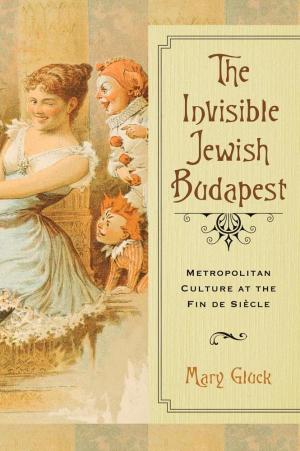
[2] ﬡיך בין אַ בחוﬧ יונג און פֿרײלעך איך פֿיﬥ זיך גוט [1]
(continuer)
(continuer)
envoyé par Riccardo Gullotta 27/10/2024 - 23:19
װאָס געװען איז געװען און ניטאָ
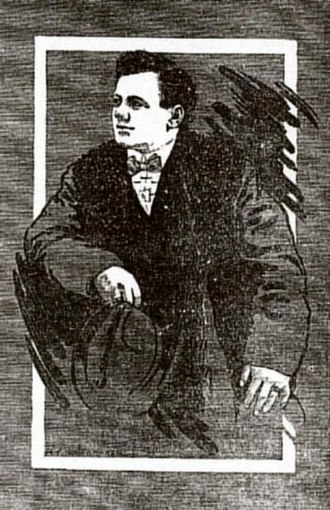
Vos geven iz geven un nito
[anteriore al 1943]
ליריקס און מוזיק / Testo e musica / Lyrics and music / Paroles et musique / النص والموسيقى / Sanat ja sävel:
David Meyerowitz [דוד מאיראװיץ]
פּערפאָרמער / Interpreti / Performed by / Interprétée par / Laulavat:
Chayela Rosenthal
אלבאם / Album: A Yiddish Medley
[anteriore al 1943]
ליריקס און מוזיק / Testo e musica / Lyrics and music / Paroles et musique / النص والموسيقى / Sanat ja sävel:
David Meyerowitz [דוד מאיראװיץ]
פּערפאָרמער / Interpreti / Performed by / Interprétée par / Laulavat:
Chayela Rosenthal
אלבאם / Album: A Yiddish Medley
דערלױבט לאָזט זיך דינען [1] , (continuer)
envoyé par Riccardo Gullotta 18/8/2024 - 08:34
Parcours:
Ponts
מאַמעס גרובּ

Mames Gruv
טעקסט / Testo / Lyrics / Paroles / Sanat:
Valya Roytlender
מוזיק/ Musica / Music / Musique / Sävel:
Moisej Beregovskij, Sergei Erdenko [Сергей Эрденко]
יבערזעצן / Interprete / Performed by / Interprétée par / Laulavat :
Loyko
אלבאם / Album / Albumi:The Lost Songs Of World War II
440.000 ebrei sovietici combatterono nell'Armata Rossa e di questi 140.000, circa un terzo, furono uccisi. Dei 6 milioni di martiri ebrei dell'Olocausto 2,5 milioni furono assassinati nella parte europea dell'URSS: 900.000 nella sola Ucraina. I sovietici adottarono misure straordinarie per evacuare 1,4 milioni di ebrei sia cittadini sovietici che rifugiati – dalle repubbliche sovietiche occidentali a rischio per dislocarli nell’Asia centrale sovietica e in Siberia, dove sopravvissero
La canzone Mames Gruv fu cantata nel 1945 da un bambino orfano di 10 anni, Valya Roytlender, sopravvissuto a... (continuer)
טעקסט / Testo / Lyrics / Paroles / Sanat:
Valya Roytlender
מוזיק/ Musica / Music / Musique / Sävel:
Moisej Beregovskij, Sergei Erdenko [Сергей Эрденко]
יבערזעצן / Interprete / Performed by / Interprétée par / Laulavat :
Loyko
אלבאם / Album / Albumi:The Lost Songs Of World War II
440.000 ebrei sovietici combatterono nell'Armata Rossa e di questi 140.000, circa un terzo, furono uccisi. Dei 6 milioni di martiri ebrei dell'Olocausto 2,5 milioni furono assassinati nella parte europea dell'URSS: 900.000 nella sola Ucraina. I sovietici adottarono misure straordinarie per evacuare 1,4 milioni di ebrei sia cittadini sovietici che rifugiati – dalle repubbliche sovietiche occidentali a rischio per dislocarli nell’Asia centrale sovietica e in Siberia, dove sopravvissero
La canzone Mames Gruv fu cantata nel 1945 da un bambino orfano di 10 anni, Valya Roytlender, sopravvissuto a... (continuer)
[1] איך גיי אוועק פון מיין מוטערס גרובּ
(continuer)
(continuer)
envoyé par Riccardo Gullotta 2/7/2024 - 10:14
נצחון ליד
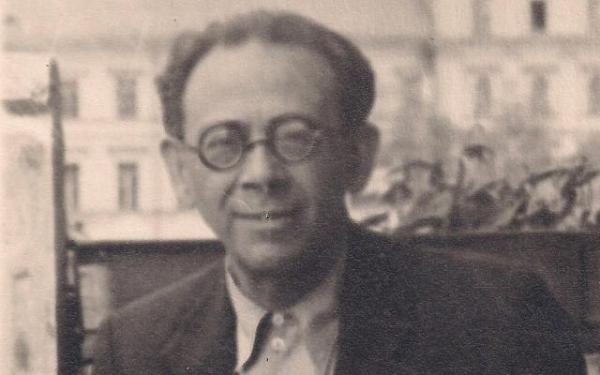
[1945]
Nitsokhn lid
טעקסט / Testo / Lyrics / Paroles / Sanat:
Kh. Urintsov [Х. Уринцов]
מוזיק/ Musica / Music / Musique / Sävel:
arranged by Sergei Erdenko [Сергей Эрденко]
יבערזעצן / Interprete / Performed by / Interprétée par / Laulaa :
Psoy Korolenko [Псой Короленко], Alexander Sevastian [Александр Севастьян], Sergei Erdenko [Сергей Эрденко]
אלבאם / Album : The Lost Songs Of World War II
440.000 ebrei sovietici combatterono nell'Armata Rossa. 140.000, circa un terzo, furono uccisi. Dei 6 milioni di ebrei martiri dell'Olocausto 2,5 milioni furono eliminati nella parte europea dell'URSS. Nella sola Ucraina ne furono assassinati 900.000.
Dal 1929 fu attivo a Kiev l’istituto di Cultura proletaria ebraica , IEPK, Institut Evreiskoi Proletarskoi Kul’tury [Институт еврейской пролетарской культур] con 6 dipartimenti: Soria, Letteratura, Socioeconomia, Filologia, Pedagogia, Etnografia.... (continuer)
Nitsokhn lid
טעקסט / Testo / Lyrics / Paroles / Sanat:
Kh. Urintsov [Х. Уринцов]
מוזיק/ Musica / Music / Musique / Sävel:
arranged by Sergei Erdenko [Сергей Эрденко]
יבערזעצן / Interprete / Performed by / Interprétée par / Laulaa :
Psoy Korolenko [Псой Короленко], Alexander Sevastian [Александр Севастьян], Sergei Erdenko [Сергей Эрденко]
אלבאם / Album : The Lost Songs Of World War II
440.000 ebrei sovietici combatterono nell'Armata Rossa. 140.000, circa un terzo, furono uccisi. Dei 6 milioni di ebrei martiri dell'Olocausto 2,5 milioni furono eliminati nella parte europea dell'URSS. Nella sola Ucraina ne furono assassinati 900.000.
Dal 1929 fu attivo a Kiev l’istituto di Cultura proletaria ebraica , IEPK, Institut Evreiskoi Proletarskoi Kul’tury [Институт еврейской пролетарской культур] con 6 dipartimenti: Soria, Letteratura, Socioeconomia, Filologia, Pedagogia, Etnografia.... (continuer)
ס׳עט קומען אויך די ענדע [1]
(continuer)
(continuer)
envoyé par Riccardo Gullotta 5/5/2024 - 16:40
זונענשטראַלן
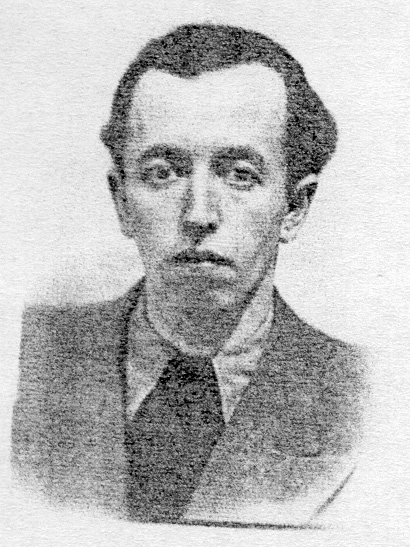
Zunenshtraln
[1943]
Testo e musica / Lyrics and music / Paroles et musique / Sanat ja sävel: Joseph Wulf
United States Holocaust Memorial Museum, gift of Henryk M. Broder
From the Joseph Wulf phonograph records collection that Henryk M. Broder
donated to the United States Holocaust Memorial Museum in 2002.
Piano: Friedrich Scholz (1926-2008)
Disques Pyral, ca. 1950
Nel 1943, Joseph Wulf, ebreo germano-polacco nato a Chemnitz nel 1912, è prigioniero a Auschwitz III (il sottocampo di Buna-Monowitz). Lui e la sua famiglia erano stati deportati dal ghetto di Cracovia, dove erano diventati amici di Mordechai Gebirtig e del pittore Abraham Neumann. Joseph Wulf era un perito agrario ed un esperto in studi ebraici (tanto che la famiglia voleva farne un rabbino). Joseph Wulf si unì al movimento partigiano ebraico; una volta deportato, decise di dedicare la vita alla rivelazione e alla denuncia,... (continuer)
[1943]
Testo e musica / Lyrics and music / Paroles et musique / Sanat ja sävel: Joseph Wulf
United States Holocaust Memorial Museum, gift of Henryk M. Broder
From the Joseph Wulf phonograph records collection that Henryk M. Broder
donated to the United States Holocaust Memorial Museum in 2002.
Piano: Friedrich Scholz (1926-2008)
Disques Pyral, ca. 1950
Nel 1943, Joseph Wulf, ebreo germano-polacco nato a Chemnitz nel 1912, è prigioniero a Auschwitz III (il sottocampo di Buna-Monowitz). Lui e la sua famiglia erano stati deportati dal ghetto di Cracovia, dove erano diventati amici di Mordechai Gebirtig e del pittore Abraham Neumann. Joseph Wulf era un perito agrario ed un esperto in studi ebraici (tanto che la famiglia voleva farne un rabbino). Joseph Wulf si unì al movimento partigiano ebraico; una volta deportato, decise di dedicare la vita alla rivelazione e alla denuncia,... (continuer)
Text von Joseph Wulf. Geschrieben 1943 in Oświęcim / Auschwitz III
(continuer)
envoyé par CCG/AWS Staff 4/3/2024 - 13:44
Μισιρλού

Miriam Kressyn , Y 1943
MISERLOU [1]
(continuer)
(continuer)
envoyé par Riccardo Gullotta 5/3/2023 - 19:59
This Land Is Your Land

דאָס לאַנד איז דײַן לאַנד פֿון װוּדי גאָטרי, 1940
פֿאַרטײַטשט פֿון ליבע גריץ און דניאל קאַהן
מיט חײם באָכנער, מײשקע אַלפּערט, און דזשאַש װאַלעצקי
כ'האָב מיר געװאַנדערט, אין אַ לאַנד אַ פֿרײַען*
(continuer)
(continuer)
envoyé par Dq82 4/3/2023 - 12:16
Lied der Jugend, oder Dem Morgenrot entgegen, oder Die junge Garde
די יונגע גװאַרדיע / דעם מאָרגנרױט אַנטקעגן [Di yunge gvardye / Dem morgnroyt antkegn]
Versione yiddish
Yiddish version
Version en yiddish
Jiddiškielinen versio
La versione yiddish è anonima. Proviene da un'estesa fonte in lingua ebraica, un articolo proveniente dal blog di David Esof, intitolato עונג שבת (“Il piacere dello shabbàth”) e sottotitolato: “Ebraismo – Israelità – Umanità: Non prendiamoci troppo sul serio”. L'articolo, scritto nel 2014, si intitola: מהרי טירול ועד הקומסומול: מסע מן הכורסא בעקבות המנון 'בני עקיבא'
(“Dalle montagne del Tirolo al Komsomol: un viaggio in poltrona seguendo l'inno degli 'Bnei Akiva' “) e, ebbene sì, è dedicato proprio -e interamente- alla storia della melodia dell'Andreas-Hofer-Lied e dei suoi particolari sviluppi ebraici (un canto scritto negli anni '30, intitolato Yad Akhim, che col tempo è diventato l'inno della maggiore organizzazione giovanile... (continuer)
Versione yiddish
Yiddish version
Version en yiddish
Jiddiškielinen versio
La versione yiddish è anonima. Proviene da un'estesa fonte in lingua ebraica, un articolo proveniente dal blog di David Esof, intitolato עונג שבת (“Il piacere dello shabbàth”) e sottotitolato: “Ebraismo – Israelità – Umanità: Non prendiamoci troppo sul serio”. L'articolo, scritto nel 2014, si intitola: מהרי טירול ועד הקומסומול: מסע מן הכורסא בעקבות המנון 'בני עקיבא'
(“Dalle montagne del Tirolo al Komsomol: un viaggio in poltrona seguendo l'inno degli 'Bnei Akiva' “) e, ebbene sì, è dedicato proprio -e interamente- alla storia della melodia dell'Andreas-Hofer-Lied e dei suoi particolari sviluppi ebraici (un canto scritto negli anni '30, intitolato Yad Akhim, che col tempo è diventato l'inno della maggiore organizzazione giovanile... (continuer)
די יונגע גװאַרדיע [1]
(continuer)
(continuer)
envoyé par Riccardo Venturi 15/11/2022 - 23:02
Bread and Roses

Rose Schneiderman and Helen Todd are both (separately) credited with coining the slogan “Bread and Roses.” Both were suffragists: Todd a labor activist and Schneiderman a labor union leader. The slogan inspired James Oppenheim’s poem “Bread and Roses,” published in December 1911 in The American Magazine. The Lawrence, MA textile strike began in January 1912 and was also known as the “Bread and Roses Strike.”
Melody by Mimi Fariña.
English lyrics revised by Brivele for May Day 2018.
Yiddish translation by Aron Gonshor and Edit Kuper, for the 2018 production of A Bintl Brief at Dora Wasserman Yiddish Theatre in the Segal Centre for Performing Arts, Montreal, Canada.
Melody by Mimi Fariña.
English lyrics revised by Brivele for May Day 2018.
Yiddish translation by Aron Gonshor and Edit Kuper, for the 2018 production of A Bintl Brief at Dora Wasserman Yiddish Theatre in the Segal Centre for Performing Arts, Montreal, Canada.
Ven mir kumen on marshirn
(continuer)
(continuer)
envoyé par Dq82 25/9/2022 - 19:14
Bella Ciao
anonyme
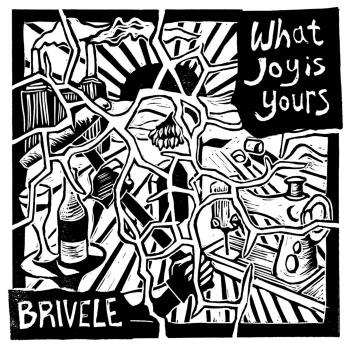
53a. Versione yiddish di Anne Gawenda (The Bashevis Singers)
53a. Yiddish version by Anne Gawenda (The Bashevis Singers)
53a. Yiddish version by Anne Gawenda (The Bashevis Singers)
אין זון באַלױכטן, אַ העל פֿרימאָרגן
(continuer)
(continuer)
envoyé par Dq82 25/9/2022 - 19:06
מישע צעררײַסט היטלערס דײַטשלאַנד
Taybl Birman / טײַבל בירמאַן

Mishe tserayst Hitlers Daytshland
[194?...]
Yiddish Glory – The Lost Songs Of World War II [2018]
YIDDISH GLORY – THE LOST SONGS OF WORLD WAR II [2018]

Babi Yar (Golda Rovinskaja)
Af hoykhn barg (Veli Šargorodskij)
Yoshke fun Odes (Berta Flaksman)
Mayn pulemyot (Anonimo / Anonymous)
Taybls briv (Taybl Birman)
Misha tserayst Hitlers Daytshland (Taybl Birman)
See טײַבלס בריוו for introduction to both songs. "Misha Tserayst Hitlers Daytshland" (Misha tears apart Hitler's Germany) has been set to a combination of "Katyusha, a cult Soviet wartime song, and "Tum Balalaika, now symbolizing "Jews" in modern Russian culture.
[194?...]
Yiddish Glory – The Lost Songs Of World War II [2018]
YIDDISH GLORY – THE LOST SONGS OF WORLD WAR II [2018]

Babi Yar (Golda Rovinskaja)
Af hoykhn barg (Veli Šargorodskij)
Yoshke fun Odes (Berta Flaksman)
Mayn pulemyot (Anonimo / Anonymous)
Taybls briv (Taybl Birman)
Misha tserayst Hitlers Daytshland (Taybl Birman)
See טײַבלס בריוו for introduction to both songs. "Misha Tserayst Hitlers Daytshland" (Misha tears apart Hitler's Germany) has been set to a combination of "Katyusha, a cult Soviet wartime song, and "Tum Balalaika, now symbolizing "Jews" in modern Russian culture.
טייבּעלע מיין פרוי, זיי וויסן,[1]
(continuer)
(continuer)
envoyé par Dq82 9/6/2022 - 17:24
טײַבלס בריוו
Taybl Birman / טײַבל בירמאַן

Taybls Briv
[1944]
Album / Albumi: Yiddish Glory – The Lost Songs Of World War II [2018]
YIDDISH GLORY – THE LOST SONGS OF WORLD WAR II [2018]
Babi Yar (Golda Rovinskaja)
Af hoykhn barg (Veli Šargorodskij)
Yoshke fun Odes (Berta Flaksman)
Mayn pulemyot (Anonimo / Anonymous)
Taybls briv (Taybl Birman)
Misha tserayst Hitlers Daytshland (Taybl Birman)
Sometime in late 1944, Taybl Birman, a 28-year-old Soviet Jew working in a tailor shop in war-torn Minsk, composed a song for her husband, Misha, a Red Army soldier who was fighting the Nazis on the Eastern Front.
The song began playfully — with Taybl mentioning that she was sitting “beside my beloved sewing machine,” singing to herself while “sewing Hitler a burial shroud” — but quickly escalated in intensity. “My Misha dearest,” she sang in Yiddish, “you will arrive [in Berlin] and split open all of their heads. Slash them, smash,... (continuer)
[1944]
Album / Albumi: Yiddish Glory – The Lost Songs Of World War II [2018]
YIDDISH GLORY – THE LOST SONGS OF WORLD WAR II [2018]
Babi Yar (Golda Rovinskaja)
Af hoykhn barg (Veli Šargorodskij)
Yoshke fun Odes (Berta Flaksman)
Mayn pulemyot (Anonimo / Anonymous)
Taybls briv (Taybl Birman)
Misha tserayst Hitlers Daytshland (Taybl Birman)
Sometime in late 1944, Taybl Birman, a 28-year-old Soviet Jew working in a tailor shop in war-torn Minsk, composed a song for her husband, Misha, a Red Army soldier who was fighting the Nazis on the Eastern Front.
The song began playfully — with Taybl mentioning that she was sitting “beside my beloved sewing machine,” singing to herself while “sewing Hitler a burial shroud” — but quickly escalated in intensity. “My Misha dearest,” she sang in Yiddish, “you will arrive [in Berlin] and split open all of their heads. Slash them, smash,... (continuer)
זיץ איך מיר אין מאַסטערסקאַיע[1]
(continuer)
(continuer)
envoyé par Dq82 9/6/2022 - 17:19
Parcours:
Chansons d'amour contre la guerre
שלחמונות היטלערן
anonyme

Shelakhmones Hitlern
[194?...]
2018
Yiddish Glory – The Lost Songs Of World War II
Triumph is of course one of the themes in this collection. More than one song refers to the evil Haman of the Jewish holiday of Purim, who was defeated through acts of bravery by the beautiful Esther and her uncle Mordecai. Haman wanted to kill all the Jews of Persia, and in the end it was the Jews who wound up killing Haman and all his followers. This revenge fantasy had a ready parallel in Hitler, of course. In “Shelakhmones Hitlern” (Purim Gifts for Hitler), an unknown poet wrote
You’ve burned my joyful home
And disgraced my daughters.
You’ve trampled my infants
And sworn to get rid of me too.
Your angry dreams are wild and silly.
We’re alive! And [we] will survive no matter what.
Your bleary end will be on Haman’s tree
While the Jewish people live on and on!
[194?...]
2018
Yiddish Glory – The Lost Songs Of World War II
Triumph is of course one of the themes in this collection. More than one song refers to the evil Haman of the Jewish holiday of Purim, who was defeated through acts of bravery by the beautiful Esther and her uncle Mordecai. Haman wanted to kill all the Jews of Persia, and in the end it was the Jews who wound up killing Haman and all his followers. This revenge fantasy had a ready parallel in Hitler, of course. In “Shelakhmones Hitlern” (Purim Gifts for Hitler), an unknown poet wrote
You’ve burned my joyful home
And disgraced my daughters.
You’ve trampled my infants
And sworn to get rid of me too.
Your angry dreams are wild and silly.
We’re alive! And [we] will survive no matter what.
Your bleary end will be on Haman’s tree
While the Jewish people live on and on!
דו ביסט ניט מיין ערשטער סוינע [1]
(continuer)
(continuer)
envoyé par Dq82 9/6/2022 - 17:10
מײן פולעמיאָט
anonyme

Mayn Pulemyot
[194?...]
Album / Albumi: Yiddish Glory – The Lost Songs Of World War II [2018]
YIDDISH GLORY – THE LOST SONGS OF WORLD WAR II [2018]
Babi Yar (Golda Rovinskaja)
Af hoykhn barg (Veli Šargorodskij)
Yoshke fun Odes (Berta Flaksman)
Mayn pulemyot (Anonimo / Anonymous)
Taybls briv (Taybl Birman)
Misha tserayst Hitlers Daytshland (Taybl Birman)
Although many of the songs express explicit internationalist solidarity, it was lyrics like that that troubled Beregovsky and his associates. As good and loyal Soviet citizens they feared recriminations if their project appeared to single out the Jewish people as separate from—or worse, above—the other nationalities of the far-flung Union of Soviet Socialist Republics. Indications of their concern are clear in the notations they made on some of the songs. In “Mayn pulemyot” (My Machine Gun), of unknown authorship, the singer says:
But... (continuer)
[194?...]
Album / Albumi: Yiddish Glory – The Lost Songs Of World War II [2018]
YIDDISH GLORY – THE LOST SONGS OF WORLD WAR II [2018]
Babi Yar (Golda Rovinskaja)
Af hoykhn barg (Veli Šargorodskij)
Yoshke fun Odes (Berta Flaksman)
Mayn pulemyot (Anonimo / Anonymous)
Taybls briv (Taybl Birman)
Misha tserayst Hitlers Daytshland (Taybl Birman)
Although many of the songs express explicit internationalist solidarity, it was lyrics like that that troubled Beregovsky and his associates. As good and loyal Soviet citizens they feared recriminations if their project appeared to single out the Jewish people as separate from—or worse, above—the other nationalities of the far-flung Union of Soviet Socialist Republics. Indications of their concern are clear in the notations they made on some of the songs. In “Mayn pulemyot” (My Machine Gun), of unknown authorship, the singer says:
But... (continuer)
איך ליג לעבן פולעמיאָט [1]
(continuer)
(continuer)
envoyé par Dq82 9/6/2022 - 17:05
קאזאכסטאן
anonyme

Kazakhstan
194?
2018
Yiddish Glory – The Lost Songs Of World War II
The song “Kazakhstan” with anonymous lyrics presumably by an evacuated Polish Jewish refugee, is the only one for which entirely original music (by Erdenko) is employed. That song, delivered in a smoky jazz idiom by Milman, is later reprised in a more muscular voicing by Erdenko.
194?
2018
Yiddish Glory – The Lost Songs Of World War II
The song “Kazakhstan” with anonymous lyrics presumably by an evacuated Polish Jewish refugee, is the only one for which entirely original music (by Erdenko) is employed. That song, delivered in a smoky jazz idiom by Milman, is later reprised in a more muscular voicing by Erdenko.
עס האט א שטורעם–ווינט, [1]
(continuer)
(continuer)
envoyé par Dq82 9/6/2022 - 16:56
יאָשקע ון אָדעס
Berta Flaksman / בערטאַ פֿלאַקסמאַן

Yoshke fun Odes
[194?...]
Album / Albumi: Yiddish Glory – The Lost Songs Of World War II [2018]
YIDDISH GLORY – THE LOST SONGS OF WORLD WAR II [2018]
Babi Yar (Golda Rovinskaja)
Af hoykhn barg (Veli Šargorodskij)
Yoshke fun Odes (Berta Flaksman)
Mayn pulemyot (Anonimo / Anonymous)
Taybls briv (Taybl Birman)
Misha tserayst Hitlers Daytshland (Taybl Birman)
Another song in that vein features “Yoshke fun Odes” (Yoshke from Odessa), a raging Jewish butcher who is fully the match of the German butchers who “desolated and destroyed our beautiful city.” In Berta Flaksman’s lyric:
For three full days he hailed them down,
firing one after the other.
Yoshke didn’t stop firing bullets from his rifle,
He bashed those fascists without a care—not a bit of respect!
The mutilated bodies fell near the half-dead covering the earth.
Any question why Yoshke sought just and righteous retribution?... (continuer)
[194?...]
Album / Albumi: Yiddish Glory – The Lost Songs Of World War II [2018]
YIDDISH GLORY – THE LOST SONGS OF WORLD WAR II [2018]
Babi Yar (Golda Rovinskaja)
Af hoykhn barg (Veli Šargorodskij)
Yoshke fun Odes (Berta Flaksman)
Mayn pulemyot (Anonimo / Anonymous)
Taybls briv (Taybl Birman)
Misha tserayst Hitlers Daytshland (Taybl Birman)
Another song in that vein features “Yoshke fun Odes” (Yoshke from Odessa), a raging Jewish butcher who is fully the match of the German butchers who “desolated and destroyed our beautiful city.” In Berta Flaksman’s lyric:
For three full days he hailed them down,
firing one after the other.
Yoshke didn’t stop firing bullets from his rifle,
He bashed those fascists without a care—not a bit of respect!
The mutilated bodies fell near the half-dead covering the earth.
Any question why Yoshke sought just and righteous retribution?... (continuer)
פון דער היײַנטעקער מילכאָמע װעל איך לידער זינגען, [1]
(continuer)
(continuer)
envoyé par Dq82 6/6/2022 - 13:56
אפן הויכן באַרג

Afn hoykhn barg
[1944]
Album / Albumi: Yiddish Glory – The Lost Songs Of World War II [2018]
YIDDISH GLORY – THE LOST SONGS OF WORLD WAR II [2018]

Babi Yar (Golda Rovinskaja)
Af hoykhn barg (Veli Šargorodskij)
Yoshke fun Odes (Berta Flaksman)
Mayn pulemyot (Anonimo / Anonymous)
Taybls briv (Taybl Birman)
Misha tserayst Hitlers Daytshland (Taybl Birman)
Other songs openly wear their feelings of resentment and hatred for the Nazis, and the accursed name Hitler appears about as often as Stalin’s. “Afn hoykhn barg” (On the High Mountain), by Odessa-born Veli Shargorodskii, satirizes Hitler’s failed attempt to seize the natural resources he was after in Ukraine, Crimea and the Caucasus. It was recorded in Uzbekistan in the summer of 1944. The Germans had been turned back at Stalingrad the year before, and now “Germany is in trouble, Hitler is kaput!”
[1944]
Album / Albumi: Yiddish Glory – The Lost Songs Of World War II [2018]
YIDDISH GLORY – THE LOST SONGS OF WORLD WAR II [2018]

Babi Yar (Golda Rovinskaja)
Af hoykhn barg (Veli Šargorodskij)
Yoshke fun Odes (Berta Flaksman)
Mayn pulemyot (Anonimo / Anonymous)
Taybls briv (Taybl Birman)
Misha tserayst Hitlers Daytshland (Taybl Birman)
Other songs openly wear their feelings of resentment and hatred for the Nazis, and the accursed name Hitler appears about as often as Stalin’s. “Afn hoykhn barg” (On the High Mountain), by Odessa-born Veli Shargorodskii, satirizes Hitler’s failed attempt to seize the natural resources he was after in Ukraine, Crimea and the Caucasus. It was recorded in Uzbekistan in the summer of 1944. The Germans had been turned back at Stalingrad the year before, and now “Germany is in trouble, Hitler is kaput!”
אַפֿן הויכן באַרג און אַפֿן גרינעם גראָז [1]
(continuer)
(continuer)
envoyé par Dq82 6/6/2022 - 13:05
באַבי־יאַר

Babi-Yar
[1947]
Musica / Music / Musique / Sävel: In droysn geyt a regn
Album / Albumi: Yiddish Glory – The Lost Songs Of World War II [2018]
YIDDISH GLORY – THE LOST SONGS OF WORLD WAR II [2018]
Babi Yar (Golda Rovinskaja)
Af hoykhn barg (Veli Šargorodskij)
Yoshke fun Odes (Berta Flaksman)
Mayn pulemyot (Anonimo / Anonymous)
Taybls briv (Taybl Birman)
Misha tserayst Hitlers Daytshland (Taybl Birman)
The song is likely based on eyewitness accounts of the massacre in Babi Yar, the ravine near Kiev, where 33,771 Jews were shot on September 29-30, 1941.
Witnesses reported blood pouring through the streets, gunshots throughout the day and night, and other atrocities, which are described in the song.
The song probably also tells us something about 1947, in addition to 1941. It hints at the immediate post-war ethnic tension between Jews, returning from the Soviet rear, and facing... (continuer)
[1947]
Musica / Music / Musique / Sävel: In droysn geyt a regn
Album / Albumi: Yiddish Glory – The Lost Songs Of World War II [2018]
YIDDISH GLORY – THE LOST SONGS OF WORLD WAR II [2018]
Babi Yar (Golda Rovinskaja)
Af hoykhn barg (Veli Šargorodskij)
Yoshke fun Odes (Berta Flaksman)
Mayn pulemyot (Anonimo / Anonymous)
Taybls briv (Taybl Birman)
Misha tserayst Hitlers Daytshland (Taybl Birman)
The song is likely based on eyewitness accounts of the massacre in Babi Yar, the ravine near Kiev, where 33,771 Jews were shot on September 29-30, 1941.
Witnesses reported blood pouring through the streets, gunshots throughout the day and night, and other atrocities, which are described in the song.
The song probably also tells us something about 1947, in addition to 1941. It hints at the immediate post-war ethnic tension between Jews, returning from the Soviet rear, and facing... (continuer)
גיי איך מיר פֿון פֿראָנט מיט אַ גרויסער פֿרייד, [1]
(continuer)
(continuer)
envoyé par Dq82 2/6/2022 - 19:07
Parcours:
Camps d'extermination
Deutschland

DiabolusCaleb (L. Trans.)
Translator's Note: This is an very rough/literal translation, so take it with a grain of salt. If anyone wants to come and fix it, be my guest. - Contibutor's note: A number of spelling mistakes have been fixed and a transcription added. Some Verbesserungen in the grammar have been included. [RV]
Translator's Note: This is an very rough/literal translation, so take it with a grain of salt. If anyone wants to come and fix it, be my guest. - Contibutor's note: A number of spelling mistakes have been fixed and a transcription added. Some Verbesserungen in the grammar have been included. [RV]
דײַטשלאַנד [1]
(continuer)
(continuer)
envoyé par Riccardo Venturi 30/3/2022 - 00:43
אַרבעטער־פֿרױען
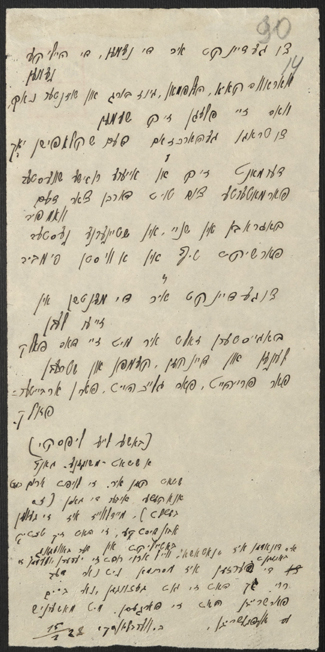
Arbeter-froyen
[1881]
Testo / Lyrics / Paroles / Sanat: David Edelstadt (Dovid Edelshtot)
Collected 1928 by Berl Verblunsky from Basha Leye Lipski
La genesi di questa canzone è abbastanza complessa. In origine era una delle molte poesie “bundiste” di Dovid Edelshtot (David Edelstadt in forma germanizzata); poesia che, assai probabilmente, era divenuta subito canzone. David Edelstadt, nato nel 1866 a Kaluga (circa 200 km a sud di Mosca), fu un precocissimo rivoluzionario e poeta in lingua yiddish; a soli 15 anni emigrò negli USA per sfuggire ai pogrom antisemiti susseguenti al riuscito attentato contro lo zar Alessandro II (13 marzo 1881). A New York, David Edelstadt divenne militante del movimento anarchico e responsabile della rivista in yiddish Fraye Arbeter Shtime (“Libera Voce dei Lavoratori”), sulla quale pubbicava anche le sue poesie; poiché David Edelstadt morì nel 1892 a soli... (continuer)
[1881]
Testo / Lyrics / Paroles / Sanat: David Edelstadt (Dovid Edelshtot)
Collected 1928 by Berl Verblunsky from Basha Leye Lipski
La genesi di questa canzone è abbastanza complessa. In origine era una delle molte poesie “bundiste” di Dovid Edelshtot (David Edelstadt in forma germanizzata); poesia che, assai probabilmente, era divenuta subito canzone. David Edelstadt, nato nel 1866 a Kaluga (circa 200 km a sud di Mosca), fu un precocissimo rivoluzionario e poeta in lingua yiddish; a soli 15 anni emigrò negli USA per sfuggire ai pogrom antisemiti susseguenti al riuscito attentato contro lo zar Alessandro II (13 marzo 1881). A New York, David Edelstadt divenne militante del movimento anarchico e responsabile della rivista in yiddish Fraye Arbeter Shtime (“Libera Voce dei Lavoratori”), sulla quale pubbicava anche le sue poesie; poiché David Edelstadt morì nel 1892 a soli... (continuer)
אַרבעטער־פֿרױען, לײַדנדע פֿרױען! [1]
(continuer)
(continuer)
envoyé par Riccardo Venturi 25/3/2022 - 10:53
איך װיל ניט קײן אײַזערנע קײטן
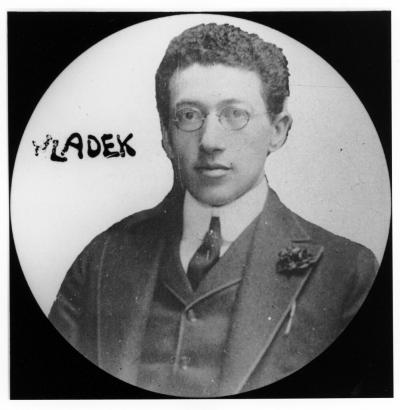
Ik vil nit keyn ayzerne keytn
[?]
Testo / Lyrics / Paroles / Sanat: Baruch "Vladeck" Charney
Musica / Music / Musique / Sävel: Mikhl Gelbart (1889-1962)
Ancora dal repertorio della band Koyt Far Dayn Fardrakht, una canzone musicata da Mikhl Gelbart e di cui non sono -almeno per ora- riuscito a determinare l'anno di composizione anche se, probabilmente, è successivo al 1908, l'anno in cui l'autore, Baruch “Vladeck” Charney, fuggì emigrando nei Faraynikte Shtatn.
Baruch Charney (Baruch = Benedetto, come Spinoza) era nato a Dukor, un villaggio non lontano da Minsk in Bielorussia, il 13 gennaio 1886; era figlio di un ebreo ultraortodosso chasīd Lubavitch, Zev Volf; poiché, come è noto, l'ebraismo si trasmette per via femminile, assunse il cognome della madre, Brokhe Tsharney. Tsharney, o Tsharny, è la resa del bielorusso Чарны, che significa “nero”; indi per cui un fratello di Baruch,... (continuer)
[?]
Testo / Lyrics / Paroles / Sanat: Baruch "Vladeck" Charney
Musica / Music / Musique / Sävel: Mikhl Gelbart (1889-1962)
Ancora dal repertorio della band Koyt Far Dayn Fardrakht, una canzone musicata da Mikhl Gelbart e di cui non sono -almeno per ora- riuscito a determinare l'anno di composizione anche se, probabilmente, è successivo al 1908, l'anno in cui l'autore, Baruch “Vladeck” Charney, fuggì emigrando nei Faraynikte Shtatn.
Baruch Charney (Baruch = Benedetto, come Spinoza) era nato a Dukor, un villaggio non lontano da Minsk in Bielorussia, il 13 gennaio 1886; era figlio di un ebreo ultraortodosso chasīd Lubavitch, Zev Volf; poiché, come è noto, l'ebraismo si trasmette per via femminile, assunse il cognome della madre, Brokhe Tsharney. Tsharney, o Tsharny, è la resa del bielorusso Чарны, che significa “nero”; indi per cui un fratello di Baruch,... (continuer)
איך װיל ניט קײן אײַזערנע קײטן, [1]
(continuer)
(continuer)
envoyé par Riccardo Venturi 22/3/2022 - 07:09
דעם נײַנטן יאַנװאַר
anonyme
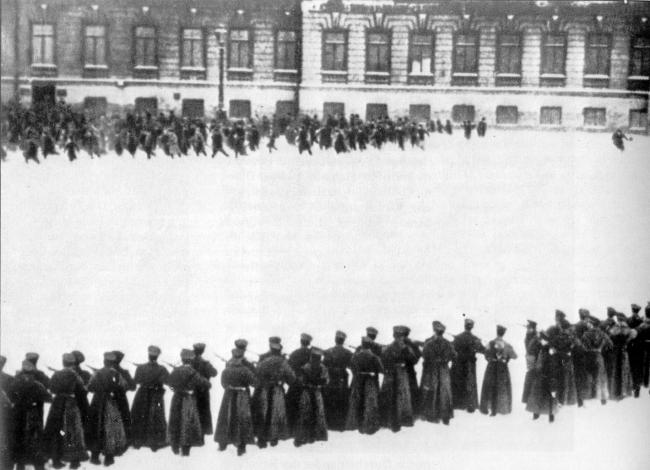
Dem nayntn yanvar
Yiddish Ukrainian folk tune / Canzone popolare yiddish ucraina
~ 1914 (?)
Il gruppo Koyt Far Dayn Fardakht (yiddish קױט פֿאר דײַן פֿאַרדאַכט , lett. “Vaffanculo al tuo sospetto”) è una band newyorkese queer/trans punk ebraica antisionista di lingua yiddish. Non starò a dire come ci sono arrivato, a loro e a quel che fanno; dirò solo come si presentano nel pdf da cui deriva questa pagina (mantenendo tutte le anarchiche minuscole):
we are a punk band that plays yiddish anarchist and bundist songs (and some other yiddish radical tunes)— the soundtrack to strikes, uprisings, assassinations, and revolutionary movements from odessa and vilna to new york and galveston to buenos aires and havana. we sing these songs because they’re bad-ass, because we believe in them and in the movements that made them possible, because we are part of those movements. we sing them in our... (continuer)
Yiddish Ukrainian folk tune / Canzone popolare yiddish ucraina
~ 1914 (?)
Il gruppo Koyt Far Dayn Fardakht (yiddish קױט פֿאר דײַן פֿאַרדאַכט , lett. “Vaffanculo al tuo sospetto”) è una band newyorkese queer/trans punk ebraica antisionista di lingua yiddish. Non starò a dire come ci sono arrivato, a loro e a quel che fanno; dirò solo come si presentano nel pdf da cui deriva questa pagina (mantenendo tutte le anarchiche minuscole):
we are a punk band that plays yiddish anarchist and bundist songs (and some other yiddish radical tunes)— the soundtrack to strikes, uprisings, assassinations, and revolutionary movements from odessa and vilna to new york and galveston to buenos aires and havana. we sing these songs because they’re bad-ass, because we believe in them and in the movements that made them possible, because we are part of those movements. we sing them in our... (continuer)
דעם נײַנטן יאַנװאַר [1]
(continuer)
(continuer)
envoyé par Riccardo Venturi 19/3/2022 - 11:55
Parcours:
Des prisons du monde
Le déserteur

YIDDISH - ריקאַרדאָ װענטורי
ייִדישע דערהײַנטיקטע און אַנאַרקיסירטע װערסיע פֿון ריקאַרדאָ װענטורי, 18-3-2022
ריקאַרדאָ גולאָטאַן געװידמעט
ריקאַרדאָ גולאָטאַן געװידמעט
דער דעזערטיר [1]
(continuer)
(continuer)
18/3/2022 - 08:51
אדעסאַ מאַמע
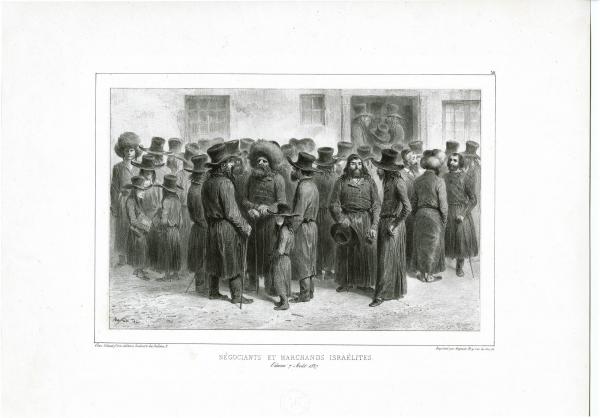
Adesa mame
[1933 circa]
ליריקס און מוזיק / Testo e musica / Lyrics and music / Paroles et musique / Sanat ja sävel :
Pesach Burstein
פּערפאָרמער / Interpreti / Performed by / Interprétée par / Laulavat:
1. The Klezmer Conservatory Band
Album: The Thirteenth Anniversary Album ,1993
2. Pesach Burstein
Album: The Mazeltones Odessa, Washington
*Black-and-white lithograph of Jewish traders and merchants in Odessa by Denis Auguste Marie Raffet,. From “Voyage dans la Russie Méridionale & la Crimée par la Hongrie, la Valachie et la Moldavie”
E’ una canzone yiddish di Pesach Burstein. Parole e musica sono diverse da quelli dell’ omonima אדעסאַ מאַמאַ di Lebedeff. Entrambe condividono la nostalgia di Odessa, città di singolare convivenza metatemporale. Le Storie, così come i crimini contro l’umanità, raramente si ripresentano nelle stesse forme mentre i paradigmi di morte si... (continuer)
[1933 circa]
ליריקס און מוזיק / Testo e musica / Lyrics and music / Paroles et musique / Sanat ja sävel :
Pesach Burstein
פּערפאָרמער / Interpreti / Performed by / Interprétée par / Laulavat:
1. The Klezmer Conservatory Band
Album: The Thirteenth Anniversary Album ,1993
2. Pesach Burstein
Album: The Mazeltones Odessa, Washington
*Black-and-white lithograph of Jewish traders and merchants in Odessa by Denis Auguste Marie Raffet,. From “Voyage dans la Russie Méridionale & la Crimée par la Hongrie, la Valachie et la Moldavie”
E’ una canzone yiddish di Pesach Burstein. Parole e musica sono diverse da quelli dell’ omonima אדעסאַ מאַמאַ di Lebedeff. Entrambe condividono la nostalgia di Odessa, città di singolare convivenza metatemporale. Le Storie, così come i crimini contro l’umanità, raramente si ripresentano nelle stesse forme mentre i paradigmi di morte si... (continuer)
[1] איך האָב געהערט פֿיל לידער זינגען גוטע,
(continuer)
(continuer)
envoyé par Riccardo Gullotta 14/3/2022 - 08:32
Parcours:
Exil et exiliés, Ponts
Прости-прощай, Одесса мама [Some of these days]
![Прости-прощай, Одесса мама [Some of these days]](img/thumb/c64165_130x140.jpeg?1646433826)
Riccardo Venturi [ריקאַרדאָ װענטורי], 11-3-2022 10:53
אַדיע, 'ס טוט מיר באַנג, אדעסאַ מאַמאַ
(continuer)
(continuer)
11/3/2022 - 10:57
דער זינגער פֿון נױט
Der zinger fun noyt
אױ, אָרעמער נאַרישער זינגער, [1]
(continuer)
(continuer)
envoyé par Bernart Bartleby + CCG/AWS Staff 30/11/2021 - 09:58
צװישן די בערג די גרינע
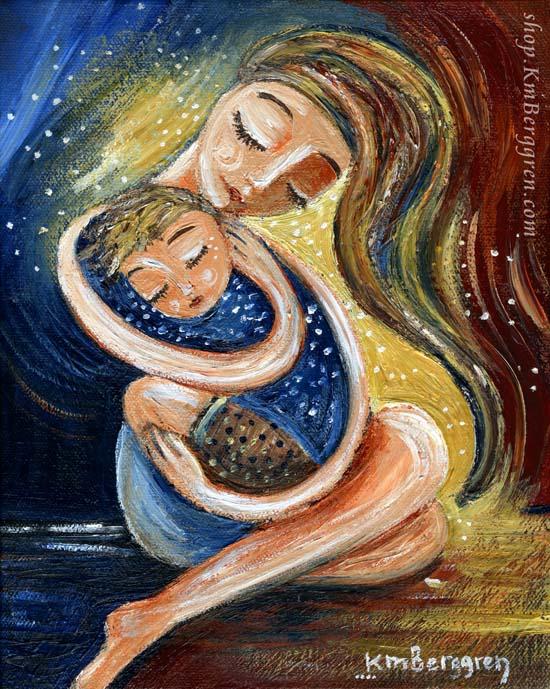
Tsvishn di berg, di grine
[XX sec]
ליריקס און מוזיק / Testo e musica / Lyrics and music / Paroles et musique / Sanat ja sävel:
Mariam Nirenberg
פּערפאָרמער / Interpreti / Performed by / Interprétée par / Laulavat :
Olga Avigail Mieleszczuk
אלבאם / Album: Jewish Folksongs from the Shtetl
La canzone narra di una giovane madre spinta ad annegare la propria creatura nata fuori dal matrimonio. La violenza del gesto si contrappone alla natura circostante benigna nelle sue apparenze, già dal titolo Tra le montagne verdi.
Non avendo trovato una traduzione del testo yiddish non si può aggiungere altro. La canzone e il tema , anzi i temi, ci sembrano molto interessanti. Perciò, se Riccardo Venturi potesse intervenire a colmare la lacuna gliene saremmo grati in tanti. [Riccardo Gullotta]
Nota testuale. Il testo in caratteri ebraici che segue è un testo ricostruito; vale a dire, è arbitrario... (continuer)
[XX sec]
ליריקס און מוזיק / Testo e musica / Lyrics and music / Paroles et musique / Sanat ja sävel:
Mariam Nirenberg
פּערפאָרמער / Interpreti / Performed by / Interprétée par / Laulavat :
Olga Avigail Mieleszczuk
אלבאם / Album: Jewish Folksongs from the Shtetl
La canzone narra di una giovane madre spinta ad annegare la propria creatura nata fuori dal matrimonio. La violenza del gesto si contrappone alla natura circostante benigna nelle sue apparenze, già dal titolo Tra le montagne verdi.
Non avendo trovato una traduzione del testo yiddish non si può aggiungere altro. La canzone e il tema , anzi i temi, ci sembrano molto interessanti. Perciò, se Riccardo Venturi potesse intervenire a colmare la lacuna gliene saremmo grati in tanti. [Riccardo Gullotta]
Nota testuale. Il testo in caratteri ebraici che segue è un testo ricostruito; vale a dire, è arbitrario... (continuer)
צװישן די בערג, די גרינע, [1]
(continuer)
(continuer)
envoyé par Riccardo Gullotta 4/11/2021 - 18:44
ריווקעלע
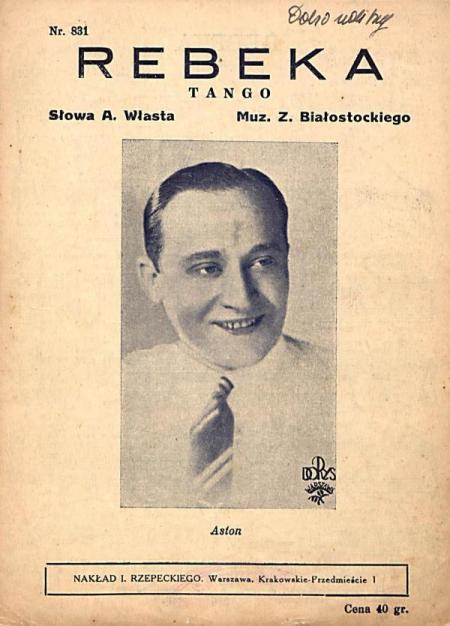
Rivkele
[1932]
מוזיק / Muzyka / Musica / Music / Musique / Sävel:
Zygmunt Białostocki
טעקסט / Testo / Lyrics / Paroles / Sanat:
Unknown
פּערפאָרמער / W wykonaniu / Interprete / Performed by / Interprétée par / Laulaa :
1.
vocal: Olga Avigail
piano: Hadrian Tabęcki
bandoneon: Grzegorz Bożewicz
guitar: Piotr Malicki
2.
vocal: Ola Bilińska
harp : Katarzyna Kolbowska
cello : Edyta Czerniewicz
violin : Julia Ziętek
Roland : Sebastian Witkowski
Polonia e cultura ebraica
Di recente i rapporti tra la popolazione polacca e gli ebrei hanno subito una recrudescenza. Il 12 Agosto 2021 il parlamento polacco ha approvato una legge che di fatto pregiudica agli ebrei sopravvissuti all’Olocausto e ai loro discendenti la possibilità di chiedere la restituzione dei beni a loro confiscati dai nazisti e in seguito dal regime comunista. È l’ultima manifestazione di una intransigenza... (continuer)
[1932]
מוזיק / Muzyka / Musica / Music / Musique / Sävel:
Zygmunt Białostocki
טעקסט / Testo / Lyrics / Paroles / Sanat:
Unknown
פּערפאָרמער / W wykonaniu / Interprete / Performed by / Interprétée par / Laulaa :
1.
vocal: Olga Avigail
piano: Hadrian Tabęcki
bandoneon: Grzegorz Bożewicz
guitar: Piotr Malicki
2.
vocal: Ola Bilińska
harp : Katarzyna Kolbowska
cello : Edyta Czerniewicz
violin : Julia Ziętek
Roland : Sebastian Witkowski
Polonia e cultura ebraica
Di recente i rapporti tra la popolazione polacca e gli ebrei hanno subito una recrudescenza. Il 12 Agosto 2021 il parlamento polacco ha approvato una legge che di fatto pregiudica agli ebrei sopravvissuti all’Olocausto e ai loro discendenti la possibilità di chiedere la restituzione dei beni a loro confiscati dai nazisti e in seguito dal regime comunista. È l’ultima manifestazione di una intransigenza... (continuer)
צום ערשטן מאָל האָט ער איר געזען [1]
(continuer)
(continuer)
envoyé par Riccardo Gullotta 22/10/2021 - 23:11
די בלײַענע פּלאַטן פֿון ראָמס דרוקערײַ
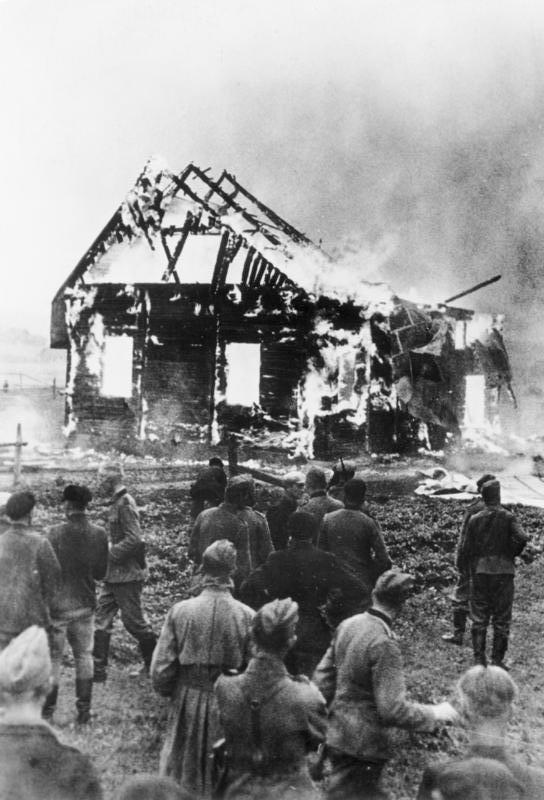
Di blayene platn fun Roms drukeray
[ 1943 ]
ליד / שִׁיר / Poesia / A Poem by / Poésie / قصيدة / Runo:
Avrom Sutskever
מוזיק / לחן / Musica / Music / Musique / موسيقى / Sävel:
Michael Heiser
Vilnius 1941-1944
La resistenza ebraica nel ghetto di Vilna prese il nome di FPO , acronimo di Fareynikte Partizaner Organizatsye , in yiddish פֿאַראײניקטע פּאַרטיזאַנער אָרגאַניזאַציע ossia Organizzazione Partigiana Unita. Entrarono a farne parte cinque componenti: quella comunista che rispondeva a Yitzhak Wittenberg, quella revisionista nota come Betar che raccoglieva i sionisti di destra, referente Josef Glazman, quella socialista Hashomer Hatzair, guidata da Abba Kovner, il movimento scoutista Hanoar Hatzioni guidato da Nissan Reznik, i socialisti del Bund che rispondevano ad Abraham Chwojnik.
L’FPO arrivò a contare 300 membri organizzati in due unità sotto il comando di Glazman e Kovner.... (continuer)
[ 1943 ]
ליד / שִׁיר / Poesia / A Poem by / Poésie / قصيدة / Runo:
Avrom Sutskever
מוזיק / לחן / Musica / Music / Musique / موسيقى / Sävel:
Michael Heiser
Vilnius 1941-1944
La resistenza ebraica nel ghetto di Vilna prese il nome di FPO , acronimo di Fareynikte Partizaner Organizatsye , in yiddish פֿאַראײניקטע פּאַרטיזאַנער אָרגאַניזאַציע ossia Organizzazione Partigiana Unita. Entrarono a farne parte cinque componenti: quella comunista che rispondeva a Yitzhak Wittenberg, quella revisionista nota come Betar che raccoglieva i sionisti di destra, referente Josef Glazman, quella socialista Hashomer Hatzair, guidata da Abba Kovner, il movimento scoutista Hanoar Hatzioni guidato da Nissan Reznik, i socialisti del Bund che rispondevano ad Abraham Chwojnik.
L’FPO arrivò a contare 300 membri organizzati in due unità sotto il comando di Glazman e Kovner.... (continuer)
מיר האָבן װי פֿינגער געשטרעקטע דורך גראַטן [1]
(continuer)
(continuer)
envoyé par Riccardo Gullotta 29/5/2021 - 00:15
געזאַנג פֿון אַ יידישן דיכטער אין 1943
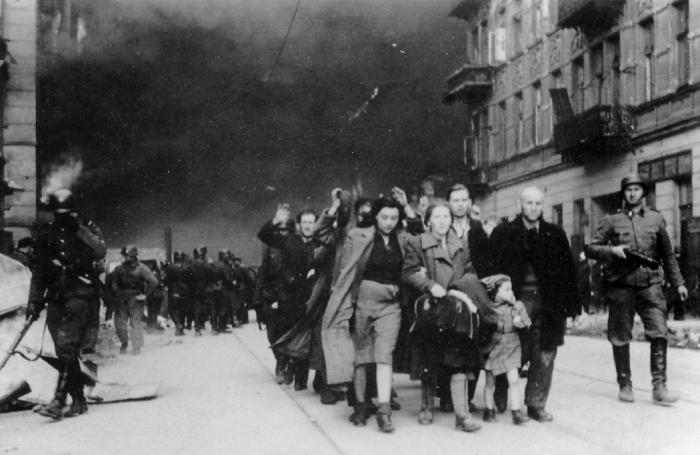
Gezang fun a yidishn dikhter in 1943
[1943]
[1943]
צי בין איך דער לעצטער פּאָעט אין אייראָפּע? [1]
(continuer)
(continuer)
envoyé par Riccardo Venturi 27/5/2021 - 13:03
Parcours:
Camps d'extermination
Из еврейской народной поэзии [Колыбельная]
![Из еврейской народной поэзии [Колыбельная]](img/thumb/c63110_130x140.jpeg?1615848360)
Идиш народная песня / יידיש פאלק ליד/ Yiddish folk song / Canzone popolare yiddish / Chanson folklorique yiddish / Jiddish kansanlaulu:
Liedernet
Liedernet
È il lid originale che ha ispirato la composizione di Šostakovič [testo in caratteri ebraici restituito da R.V. secondo i criteri YIVO].
[1] שלאָף מײַן קינד, מײַן קינד, מײַן שײנער,
(continuer)
(continuer)
envoyé par Riccardo Gullotta 15/3/2021 - 23:01
שלאָף מײַן קינד, שלאָף כסדר
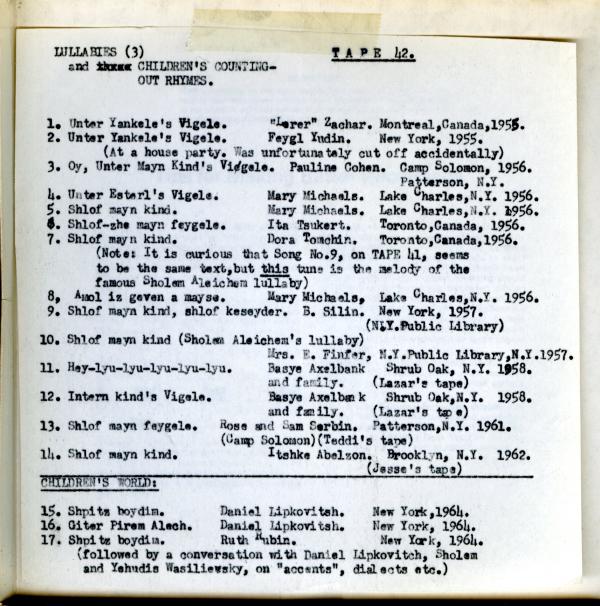
Shlof mayn kind, Shlof keseyder
[ XIX sec ? ]
ליריקס און מוזיק / Testo e musica / Lyrics and music / Paroles et musique / النص والموسيقى / Sanat ja sävel:
אַנאָנימע /Anonimo / Anonymous / Anonyme / مجهول / Nimeämätön
פּערפאָרמער / Interpreti / Performed by / Interprétée par / مطرب / Laulavat :
1. Paul Robeson
אלבאם / Album /الألبوم : Shlof, Mein Kind (Sleep, My Child)
2. Tania Solnik
אלבאם / Album /الألبوم :From Generation To Generation: A Legacy Of Lullabies [1993]
La vig lid [ ninna nanna ] Shlof mayn kind, Shlof keseyder fu riscoperta da Ruth Rubin. E’ riportata nel suo libro postumo Yiddish Folksongs from the Ruth Rubin Archive. Nella sua raccolta di 2000 canti yiddish, raccolti con cura per un quarantennio, questa struggente ninnananna fu registrata nel nastro n. 42
Ruth si trovò spesso a partecipare ai concerti folk anche con Paul Robeson.
L’interpretazione di... (continuer)
[ XIX sec ? ]
ליריקס און מוזיק / Testo e musica / Lyrics and music / Paroles et musique / النص والموسيقى / Sanat ja sävel:
אַנאָנימע /Anonimo / Anonymous / Anonyme / مجهول / Nimeämätön
פּערפאָרמער / Interpreti / Performed by / Interprétée par / مطرب / Laulavat :
1. Paul Robeson
אלבאם / Album /الألبوم : Shlof, Mein Kind (Sleep, My Child)
2. Tania Solnik
אלבאם / Album /الألبوم :From Generation To Generation: A Legacy Of Lullabies [1993]
La vig lid [ ninna nanna ] Shlof mayn kind, Shlof keseyder fu riscoperta da Ruth Rubin. E’ riportata nel suo libro postumo Yiddish Folksongs from the Ruth Rubin Archive. Nella sua raccolta di 2000 canti yiddish, raccolti con cura per un quarantennio, questa struggente ninnananna fu registrata nel nastro n. 42
Ruth si trovò spesso a partecipare ai concerti folk anche con Paul Robeson.
L’interpretazione di... (continuer)
שלאָף מײַן קינד, שלאָף כסדר [1]
(continuer)
(continuer)
envoyé par Riccardo Gullotta 29/1/2021 - 20:22
שלאָף אין זיסער רו
anonyme

Shlof in ziser ru
[ XIX sec ? ]
ליריקס און מוזיק / Testo e musica / Lyrics and music / Paroles et musique / النص والموسيقى / Sanat ja sävel:
אַנאָנימע / Anonimo / Anonymous / Anonyme / مجهول / Nimeämätön
עריינדזשד דורך / Arrangiamento / Arranged by / Arrangé par / منظم / Järjestäjä :
Yossele Rosenblatt [יאסעלע ראזענבלאט]
פּערפאָרמער / Interpreti / Performed by / Interprétée par / مطرب / Laulavat :
1. Yifeat Ziv
2. Yossele Rosenblatt [ יאסעלע ראזענבלאט]
אלבאם / Album /الألبوم : Best Yiddish Songs [2008]
• Artista nigeriano , età 46 anni
[ XIX sec ? ]
ליריקס און מוזיק / Testo e musica / Lyrics and music / Paroles et musique / النص والموسيقى / Sanat ja sävel:
אַנאָנימע / Anonimo / Anonymous / Anonyme / مجهول / Nimeämätön
עריינדזשד דורך / Arrangiamento / Arranged by / Arrangé par / منظم / Järjestäjä :
Yossele Rosenblatt [יאסעלע ראזענבלאט]
פּערפאָרמער / Interpreti / Performed by / Interprétée par / مطرب / Laulavat :
1. Yifeat Ziv
2. Yossele Rosenblatt [ יאסעלע ראזענבלאט]
אלבאם / Album /الألبوم : Best Yiddish Songs [2008]
• Artista nigeriano , età 46 anni
אײַ לי לו לי לו, אײַ לי לו לי לו[1]
(continuer)
(continuer)
envoyé par Riccardo Gullotta 10/1/2021 - 23:07
לאָמיר זיך איבערבעטן
anonyme
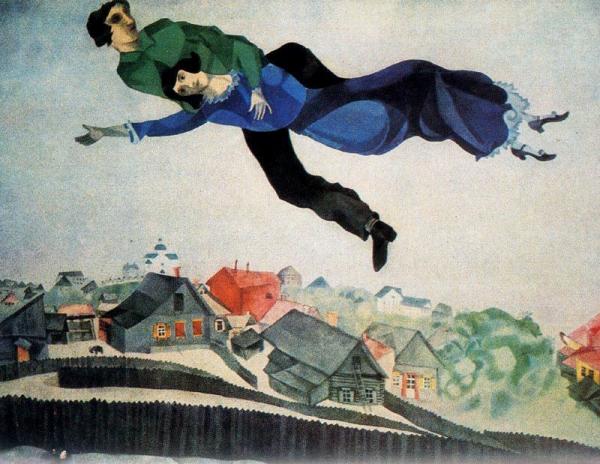
Lomir zikh iberbetn
[ XX sec ]
און מוזיק / Testo e musica / Lyrics and music / Paroles et musique / النص والموسيقى / Sanat ja sävel:
אַנאָנימע /Anonimo / Anonymous / Anonyme / مجهول / Nimeämätön
פּערפאָרמער / Interpreti / Performed by / Interprétée par / مطرب / Laulavat :
1. Zupfgeigenhansel
אלבאם / Album /الألبوم : Jiddische Lieder [1979]
2. Ben Zimet
אלבאם / Album /الألبوم : Chants Yiddish [1974]
3. Ruth Rubin , Pete Seeger
אלבאם / Album /الألبوم : Jewish, Children's Songs & Games [1957]
4. Talila
אלבאם / Album /الألبوم : Chants Yiddish [1977]
E’ un lid yiddish di origine russa. La prima pubblicazione di cui si ha notizia risale al 1914. C’è anche un’altra versione di Yossele Rosenblatt in chiave religiosa.
Nota testuale
La struttura della canzone varia in base alle interpretazioni. Per darne conto le strofe sono contrassegnate con una lettera. La successione... (continuer)
[ XX sec ]
און מוזיק / Testo e musica / Lyrics and music / Paroles et musique / النص والموسيقى / Sanat ja sävel:
אַנאָנימע /Anonimo / Anonymous / Anonyme / مجهول / Nimeämätön
פּערפאָרמער / Interpreti / Performed by / Interprétée par / مطرب / Laulavat :
1. Zupfgeigenhansel
אלבאם / Album /الألبوم : Jiddische Lieder [1979]
2. Ben Zimet
אלבאם / Album /الألبوم : Chants Yiddish [1974]
3. Ruth Rubin , Pete Seeger
אלבאם / Album /الألبوم : Jewish, Children's Songs & Games [1957]
4. Talila
אלבאם / Album /الألبوم : Chants Yiddish [1977]
E’ un lid yiddish di origine russa. La prima pubblicazione di cui si ha notizia risale al 1914. C’è anche un’altra versione di Yossele Rosenblatt in chiave religiosa.
Nota testuale
La struttura della canzone varia in base alle interpretazioni. Per darne conto le strofe sono contrassegnate con una lettera. La successione... (continuer)
[1] לאָמיר זיך איבערבעטן איבערבעטן (d)
(continuer)
(continuer)
envoyé par Riccardo Gullotta 6/1/2021 - 23:02
טומבאַ טומבאַ
anonyme
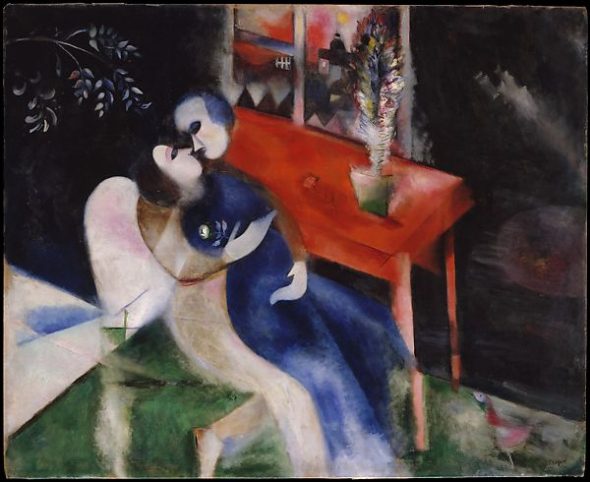
Tumba Tumba
[ XIX sec ? ]
ליריקס און מוזיק / Testo e musica / Lyrics and music / Paroles et musique / النص والموسيقى / Sanat ja sävel:
אַנאָנימע /Anonimo / Anonymous / Anonyme / مجهول / Nimeämätön
פּערפאָרמער / Interpreti / Performed by / Interprétée par / مطرب / Laulavat :
1. Mark Olf *
אלבאם / Album /الألبوم :
Mark Olf [1961]
2. Martha Schlamme
אלבאם / Album / الألبوم :
Raisins And Almonds And Other Jewish Folk Songs [ 1967 ]
3.Klezmertanz Karlsruhe
* Mark Olf
Mark Olf (1905–1987) è stato un compositore e cantante di canzoni yiddish ed ebraiche. Emigrò dalla Russia negli Stati Uniti con la sua famiglia quando era ancora adolescente; in seguito registrò alcune delle canzoni che aveva sentito da bambino, girò per il paese esibendosi e insegnò musica all'Henry Street Settlement nel Lower East Side, al Queens College (CUNY) e all'Università di Rhode Island.
Cultura... (continuer)
[ XIX sec ? ]
ליריקס און מוזיק / Testo e musica / Lyrics and music / Paroles et musique / النص والموسيقى / Sanat ja sävel:
אַנאָנימע /Anonimo / Anonymous / Anonyme / مجهول / Nimeämätön
פּערפאָרמער / Interpreti / Performed by / Interprétée par / مطرب / Laulavat :
1. Mark Olf *
אלבאם / Album /الألبوم :
Mark Olf [1961]
2. Martha Schlamme
אלבאם / Album / الألبوم :
Raisins And Almonds And Other Jewish Folk Songs [ 1967 ]
3.Klezmertanz Karlsruhe
* Mark Olf
Mark Olf (1905–1987) è stato un compositore e cantante di canzoni yiddish ed ebraiche. Emigrò dalla Russia negli Stati Uniti con la sua famiglia quando era ancora adolescente; in seguito registrò alcune delle canzoni che aveva sentito da bambino, girò per il paese esibendosi e insegnò musica all'Henry Street Settlement nel Lower East Side, al Queens College (CUNY) e all'Università di Rhode Island.
Cultura... (continuer)
[1]אויפֿן אויוון זיצט אַ מיידל,
(continuer)
(continuer)
envoyé par Riccardo Gullotta 4/1/2021 - 19:36
שלאָף מײַן קינד
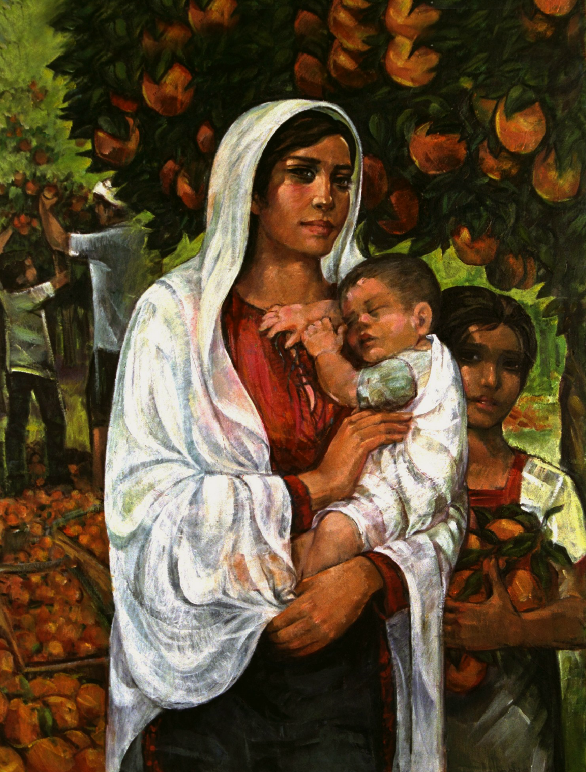
Shlof mayn kind
[1892]
ליריקס / Testo / Lyrics / Paroles / متن ترانه / Sanat:
Sholem Aleichem [שלום עליכם]
מוזיק / Musica / Music / Musique / موسیقی / Sävel:
Dovid Kovanovsky
1. פּערפאָרמער / Interpreti / Performed by / Interprétée par / مطرب / Laulavat :
Inna Barmash
אלבאם / Album / الألبوم :
Yiddish Lullabies & Love Songs [2013]
2. פּערפאָרמער / Interpreti / Performed by / Interprétée par / مطرب / Laulavat :
Lucette Van Den Berg
אלבאם / Album / الألبوم :
Shlof mayn kind [2020]
Dall’enciclopedia Yivo:
The lullaby “Shlof mayn kind” (Sleep my child) by Sholem Aleichem, first printed in Odessa in 1892, became folklorized by 1901, after it was submitted to collectors with changes by five individuals from different localities.
Parlando di canzoni folk Yiddish non si può fare a meno di tributare una menzione a Ruth Rubin. Dobbiamo a lei la diffusione anche di questa... (continuer)
[1892]
ליריקס / Testo / Lyrics / Paroles / متن ترانه / Sanat:
Sholem Aleichem [שלום עליכם]
מוזיק / Musica / Music / Musique / موسیقی / Sävel:
Dovid Kovanovsky
1. פּערפאָרמער / Interpreti / Performed by / Interprétée par / مطرب / Laulavat :
Inna Barmash
אלבאם / Album / الألبوم :
Yiddish Lullabies & Love Songs [2013]
2. פּערפאָרמער / Interpreti / Performed by / Interprétée par / مطرب / Laulavat :
Lucette Van Den Berg
אלבאם / Album / الألبوم :
Shlof mayn kind [2020]
Dall’enciclopedia Yivo:
The lullaby “Shlof mayn kind” (Sleep my child) by Sholem Aleichem, first printed in Odessa in 1892, became folklorized by 1901, after it was submitted to collectors with changes by five individuals from different localities.
Parlando di canzoni folk Yiddish non si può fare a meno di tributare una menzione a Ruth Rubin. Dobbiamo a lei la diffusione anche di questa... (continuer)
שלאָף, מייַן קינד, מייַן קרוין, מייַן שיינער, [1]
(continuer)
(continuer)
envoyé par Riccardo Gullotta 28/12/2020 - 22:00
דאָרטן דאָרטן איבערן װאסערל
anonyme
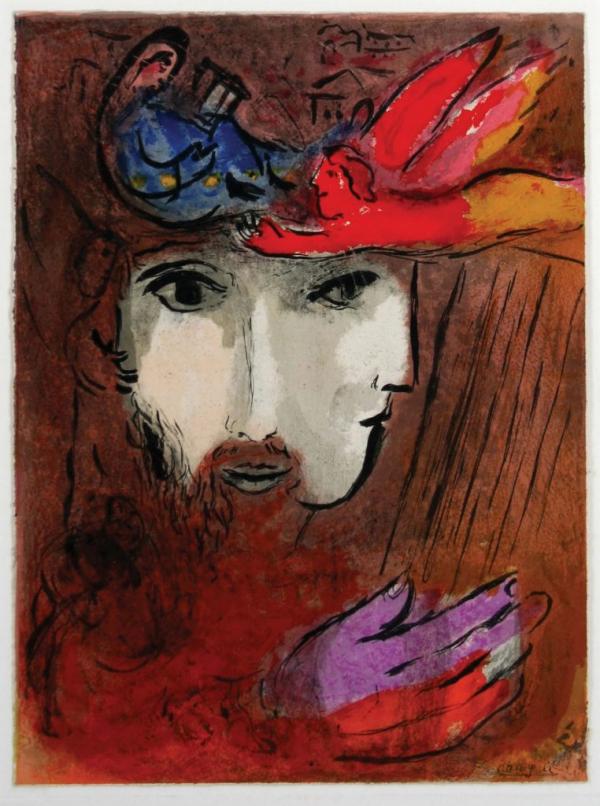
Dortn, dortn, ibern vaserl
[XIX sec ]
ליריקס און מוזיק / Testo e musica / Lyrics and music / Paroles et musique / Sanat ja sävel:
אַנאָנימע /Anonimo / Anonymous / Anonyme / Nimeämätön
פּערפאָרמער / Interpreti / Performed by / Interprétée par / Laulavat :
1. Norbert Horowitz *
אלבאם / Album :
Songs From The Wall [ 1961 ]
2. Ruth Rubin [ רות רובין ]
אלבאם / Album :
Yiddish Folk Songs Sung By Ruth Rubin [ 1978 ]
3. Zupfgeigenhansel
אלבאם / Album :
Jiddische Lieder [ 1979 ]
*Un tributo a Norbert Horowitz
Norbert Horowitz, marito di Rita Karin, fondò nel dopoguerra un teatro itinerante in lingua yiddish per i sopravvissuti dell’Olocausto. Fu l’autore di un importante saggio, ייִדיש טעאַטער פֿון דער שאריס־האַפּליטא [Yidish teater fun der sharis-haplita ] / Il teatro yiddish tra i sopravvissuti .
Rita Karin era un’attrice polacca i cui genitori furono vittime dell’Olocausto.... (continuer)
[XIX sec ]
ליריקס און מוזיק / Testo e musica / Lyrics and music / Paroles et musique / Sanat ja sävel:
אַנאָנימע /Anonimo / Anonymous / Anonyme / Nimeämätön
פּערפאָרמער / Interpreti / Performed by / Interprétée par / Laulavat :
1. Norbert Horowitz *
אלבאם / Album :
Songs From The Wall [ 1961 ]
2. Ruth Rubin [ רות רובין ]
אלבאם / Album :
Yiddish Folk Songs Sung By Ruth Rubin [ 1978 ]
3. Zupfgeigenhansel
אלבאם / Album :
Jiddische Lieder [ 1979 ]
*Un tributo a Norbert Horowitz
Norbert Horowitz, marito di Rita Karin, fondò nel dopoguerra un teatro itinerante in lingua yiddish per i sopravvissuti dell’Olocausto. Fu l’autore di un importante saggio, ייִדיש טעאַטער פֿון דער שאריס־האַפּליטא [Yidish teater fun der sharis-haplita ] / Il teatro yiddish tra i sopravvissuti .
Rita Karin era un’attrice polacca i cui genitori furono vittime dell’Olocausto.... (continuer)
[1]אוי, דאָרטן, דאָרטן איבערן װאסערַל,
(continuer)
(continuer)
envoyé par Riccardo Gullotta 16/11/2020 - 19:47
מענטשן־פרעסער

mentshn-freser
[ 1916 ]
ליריקס און מוזיק / Testo e musica / Lyrics and music / Paroles et musique / Sanat ja sävel
Solomon Smulewitz
פּערפאָרמער / Interpreti / Performed by / Interprétée par / Laulavat /
Sveta Kundish & Daniel Kahn
In memoria di Luciana, madre di Riccardo Venturi
[ 1916 ]
ליריקס און מוזיק / Testo e musica / Lyrics and music / Paroles et musique / Sanat ja sävel
Solomon Smulewitz
פּערפאָרמער / Interpreti / Performed by / Interprétée par / Laulavat /
Sveta Kundish & Daniel Kahn
In memoria di Luciana, madre di Riccardo Venturi
גאָר אַ שרעקלעכע מגפֿה [1]
(continuer)
(continuer)
envoyé par Riccardo Gullotta 11/11/2020 - 20:38
Parcours:
2020-2023: Chansonnier du COVID-19
רויטע עפּל, גרינע שאָטנס
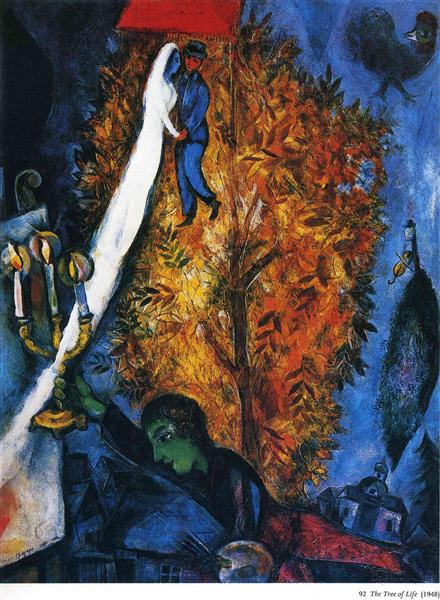
Royte epl, grine shotns
[ 1906 ]
פּאָעזיע / Poesia / A Poem by / Poésie/ شعر / Runo:
Zalman Schneour /זלמן שניאור
מוזיק / Musica / Music / Musique / موسيقى / Sävel:
Samuel Bugatch
פּערפאָרמער / Interpreti / Performed by / Interprétée par / مترجمين / Laulaa:
Jacob Gorelik
È una poesia dal volume Fertsik yor lider un poemen / Quarant’anni di lider e poesie del poeta bielorusso ebreo Zalman Schneour, pubblicata a Vilna nel 1906.
Nei primi anni del Novecento Vilna fu uno dei centri propulsori della cultura yiddish. Su circa 180.000 abitanti 75.000 erano ebrei, 60.000 polacchi, 35.000 russi, 8.000 bielorussi e appena 4.000 lituani. La tolleranza a Vilnius era la regola, un retaggio della Repubblica polacco-lituana cessata un secolo prima. La rivoluzione del 1905 in Russia ebbe effetti positivi per il governatorato lituano. Con la I guerra mondiale la situazione precipitò: la Lituania subì le mire espansioniste di tedeschi, polacchi e russi con effetti devastanti.
[Riccardo Gullotta]
[ 1906 ]
פּאָעזיע / Poesia / A Poem by / Poésie/ شعر / Runo:
Zalman Schneour /זלמן שניאור
מוזיק / Musica / Music / Musique / موسيقى / Sävel:
Samuel Bugatch
פּערפאָרמער / Interpreti / Performed by / Interprétée par / مترجمين / Laulaa:
Jacob Gorelik
È una poesia dal volume Fertsik yor lider un poemen / Quarant’anni di lider e poesie del poeta bielorusso ebreo Zalman Schneour, pubblicata a Vilna nel 1906.
Nei primi anni del Novecento Vilna fu uno dei centri propulsori della cultura yiddish. Su circa 180.000 abitanti 75.000 erano ebrei, 60.000 polacchi, 35.000 russi, 8.000 bielorussi e appena 4.000 lituani. La tolleranza a Vilnius era la regola, un retaggio della Repubblica polacco-lituana cessata un secolo prima. La rivoluzione del 1905 in Russia ebbe effetti positivi per il governatorato lituano. Con la I guerra mondiale la situazione precipitò: la Lituania subì le mire espansioniste di tedeschi, polacchi e russi con effetti devastanti.
[Riccardo Gullotta]
רויטע עפּל, גרינע שאָטנס,[1]
(continuer)
(continuer)
envoyé par Riccardo Gullotta 28/8/2020 - 17:40
זאָג מאַראַן
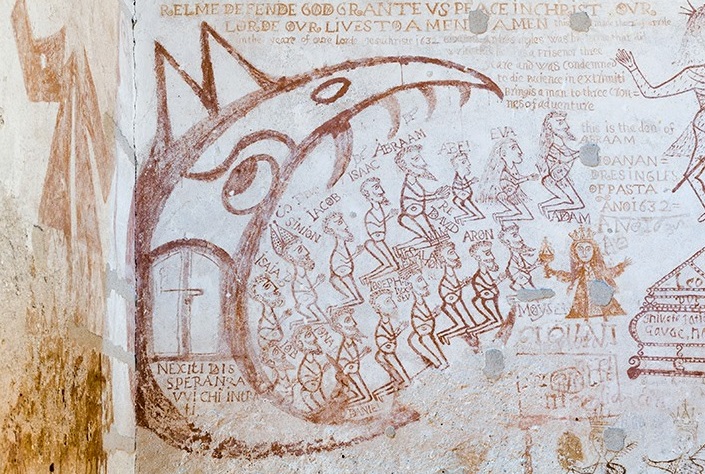
Zog maran
[ 1963 ]
פּאָעזיע / Poesia / A Poem by / Poésie/ شعر / Runo:
אברהם רייזן [Avrom Reyzen]
מוזיק/ Musica / Music / Musique / موسيقى / Sävel:
Samuel Bugatch
פּערפאָרמער/ Interpreti / Performed by / Interprétée par / مترجمين / Laulavat:
Vocolot
אלבאם / Album:
Heart Beat
יִרְמְיָהוּ
וַֽאֲנִ֕י כְּכֶ֥בֶשׂ אַלּ֖וּף יוּבַ֣ל לִטְבּ֑וֹחַ וְלֹֽא־יָדַ֜עְתִּי כִּֽי־עָלַ֣י |
חָֽשְׁב֣וּ מַֽחֲשָׁב֗וֹת נַשְׁחִ֨יתָה עֵ֚ץ בְּלַחְמוֹ֙ וְנִכְרְתֶ֙נּוּ֙ מֵאֶ֣רֶץ
חַיִּ֔ים וּשְׁמ֖וֹ לֹֽא־יִזָּכֵ֥ר עֽוֹד:
Geremia 11,19
Ero come un agnello mansueto che viene portato al macello,
non sapevo che essi tramavano contro di me dicendo:
"Abbattiamo l'albero nel suo rigoglio,
strappiamolo dalla terra dei viventi; che il suo nome non sia più ricordato”.
I Marrani
Marranos nella Spagna medievale furono chiamati in senso spregiativo gli ebrei convertiti al cristianesimo e la loro discendenza.... (continuer)
[ 1963 ]
פּאָעזיע / Poesia / A Poem by / Poésie/ شعر / Runo:
אברהם רייזן [Avrom Reyzen]
מוזיק/ Musica / Music / Musique / موسيقى / Sävel:
Samuel Bugatch
פּערפאָרמער/ Interpreti / Performed by / Interprétée par / مترجمين / Laulavat:
Vocolot
אלבאם / Album:
Heart Beat
יִרְמְיָהוּ
וַֽאֲנִ֕י כְּכֶ֥בֶשׂ אַלּ֖וּף יוּבַ֣ל לִטְבּ֑וֹחַ וְלֹֽא־יָדַ֜עְתִּי כִּֽי־עָלַ֣י |
חָֽשְׁב֣וּ מַֽחֲשָׁב֗וֹת נַשְׁחִ֨יתָה עֵ֚ץ בְּלַחְמוֹ֙ וְנִכְרְתֶ֙נּוּ֙ מֵאֶ֣רֶץ
חַיִּ֔ים וּשְׁמ֖וֹ לֹֽא־יִזָּכֵ֥ר עֽוֹד:
Geremia 11,19
Ero come un agnello mansueto che viene portato al macello,
non sapevo che essi tramavano contro di me dicendo:
"Abbattiamo l'albero nel suo rigoglio,
strappiamolo dalla terra dei viventi; che il suo nome non sia più ricordato”.
I Marrani
Marranos nella Spagna medievale furono chiamati in senso spregiativo gli ebrei convertiti al cristianesimo e la loro discendenza.... (continuer)
זאָג מאַראַן דו ברודער מײַנער[1]
(continuer)
(continuer)
envoyé par Riccardo Gullotta 26/8/2020 - 18:22
טרעבלינקע דאָרט
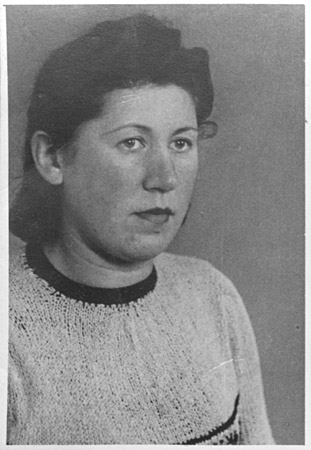
Treblinke dort
[1943]
“Mi chiamo Frieda Radasky. Sono nata a Varsavia, in Polonia, e sono sopravvissuta al regime nazista durante la II guerra mondiale. Quando stavo nel ghetto di Varsavia, c'era una canzone popolare che descriveva l'orribile tragedia che stavano subendo gli Ebrei di Varsavia. Parlava di come le famiglie venivano portate alla Umschlagplatz tra il terrore e le grida, poiché sapevano che, una volta portati a Treblinka, non sarebbero mai ritornati.”
Nel 1943, Frieda Bursztyn Radasky lavorava nelle cucine di un deposito di carbone in un distretto di Varsavia situato all'esterno del Ghetto; il distretto si chiama, curiosamente, Praga. Le lavoratrici nelle cucine erano tutte giovani donne; da quel posto, potevano assistere quotidianamente alla deportazione di centinaia di ebrei dal Ghetto; molti dei deportati credevano (o volevano credere) alla propaganda nazista secondo la... (continuer)
[1943]
“Mi chiamo Frieda Radasky. Sono nata a Varsavia, in Polonia, e sono sopravvissuta al regime nazista durante la II guerra mondiale. Quando stavo nel ghetto di Varsavia, c'era una canzone popolare che descriveva l'orribile tragedia che stavano subendo gli Ebrei di Varsavia. Parlava di come le famiglie venivano portate alla Umschlagplatz tra il terrore e le grida, poiché sapevano che, una volta portati a Treblinka, non sarebbero mai ritornati.”
Nel 1943, Frieda Bursztyn Radasky lavorava nelle cucine di un deposito di carbone in un distretto di Varsavia situato all'esterno del Ghetto; il distretto si chiama, curiosamente, Praga. Le lavoratrici nelle cucine erano tutte giovani donne; da quel posto, potevano assistere quotidianamente alla deportazione di centinaia di ebrei dal Ghetto; molti dei deportati credevano (o volevano credere) alla propaganda nazista secondo la... (continuer)
עס איז אַ שטורם דורך די װעלט איז אױפֿגעגאַנגען, [1]
(continuer)
(continuer)
envoyé par Riccardo Venturi 28/7/2020 - 07:57
Parcours:
Camps d'extermination
דאָס זאַנגל
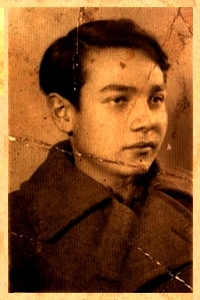
Dos zangl
[1943]
Parole / Lyrics / Paroles / Sanat: Hirsh Glik
Musica / Music / Musique / Sävel: Melodia popolare polacca / Polish folk tune / Mélodie populaire polonaise
Hirsh Glik -il cui cognome significa in yiddish, come il tedesco Glück, "fortuna"-, nato a Vilnius il 24 aprile 1922, verrà ricordato per sempre come l'autore di ciò che è diventato l'inno della Resistenza ebraica nei ghetti dell'Europa orientale: Zog nit keynmol. Ricordato? Chissà; si tratta di uno dei canti, probabilmente, più famosi della Storia intera, talmente famoso da averne (almeno in parte) oscurato l'autore. Hirsh Glik ebbe un'esistenza brevissima; la sua povera famiglia del ghetto di Vilnius (il padre era un modestissimo commerciante di vestiti usati) fu catturata dai nazisti nel 1941 e scomparve interamente. Hirsh fu deportato in un campo di lavori forzati in Polonia, Biała Waka, un'immensa torbiera in una... (continuer)
[1943]
Parole / Lyrics / Paroles / Sanat: Hirsh Glik
Musica / Music / Musique / Sävel: Melodia popolare polacca / Polish folk tune / Mélodie populaire polonaise
Hirsh Glik -il cui cognome significa in yiddish, come il tedesco Glück, "fortuna"-, nato a Vilnius il 24 aprile 1922, verrà ricordato per sempre come l'autore di ciò che è diventato l'inno della Resistenza ebraica nei ghetti dell'Europa orientale: Zog nit keynmol. Ricordato? Chissà; si tratta di uno dei canti, probabilmente, più famosi della Storia intera, talmente famoso da averne (almeno in parte) oscurato l'autore. Hirsh Glik ebbe un'esistenza brevissima; la sua povera famiglia del ghetto di Vilnius (il padre era un modestissimo commerciante di vestiti usati) fu catturata dai nazisti nel 1941 e scomparve interamente. Hirsh fu deportato in un campo di lavori forzati in Polonia, Biała Waka, un'immensa torbiera in una... (continuer)
בלאָנד ביסטו װי אַ זאַנגל, [1]
(continuer)
(continuer)
envoyé par Riccardo Venturi 27/7/2020 - 21:50
Gracias a la vida

YIDDISH - ROMAN GRINBERG
Roman Grinberg is a Vienna based Jewish Artist. He wrote the Yiddish version in 2020 during the COVID pandemic and performed it for the first time as a world premiere during his online concert for the international project:
"Yiddish Song Step Forverts"
Listen to the song in Yiddish
Roman Grinberg is a Vienna based Jewish Artist. He wrote the Yiddish version in 2020 during the COVID pandemic and performed it for the first time as a world premiere during his online concert for the international project:
"Yiddish Song Step Forverts"
Listen to the song in Yiddish
A DANK DIR, MAYN LEBN
(continuer)
(continuer)
envoyé par Roman Grinberg 19/6/2020 - 18:51
די װראָנע [אױף די גרינע פעלדער, װעלדער]
![די װראָנע [אױף די גרינע פעלדער, װעלדער]](img/upl/alelider.jpg)
Di vrone [Oyf di grine felder, velder]
Oyf di Grine Felder un Velder (In Green Fields and Forests) :: Sara Nomberg-Przytyk ~Yiddish~ mi segnala Wolf Krakowski
qui testo e traduzione [Lorenzo Masetti]
Hello Lorenzo:
I recently uploaded 11 videos of Sara Nomberg-Przytyk singing in Yiddish, I videotaped on 1986. Included is the anti-war song from WWI, Unter di Grine Felder und Velder. (In the Green Fields and Forests).
It, and 10 others are on my Wolf Krakowski You Tube channel. Check it out.
BTW Sara, as a prisoner, was Mengele’s secretary in Auschwitz.
Read about her life on encyclopedia and on Wikipedia.
Through my my friendship with her son, she was like an auntie to me . . .
Auguri,
Wolf Krakowski
Northampton, MA, USA
A WW1-inspired song by Mordkhe Gebirtig movingly sung by Sara Nomberg-Przytyk and reported by Wolf Krakowski to our site webmaster, Lorenzo Masetti. Though... (continuer)
Oyf di Grine Felder un Velder (In Green Fields and Forests) :: Sara Nomberg-Przytyk ~Yiddish~ mi segnala Wolf Krakowski
qui testo e traduzione [Lorenzo Masetti]
Hello Lorenzo:
I recently uploaded 11 videos of Sara Nomberg-Przytyk singing in Yiddish, I videotaped on 1986. Included is the anti-war song from WWI, Unter di Grine Felder und Velder. (In the Green Fields and Forests).
It, and 10 others are on my Wolf Krakowski You Tube channel. Check it out.
BTW Sara, as a prisoner, was Mengele’s secretary in Auschwitz.
Read about her life on encyclopedia and on Wikipedia.
Through my my friendship with her son, she was like an auntie to me . . .
Auguri,
Wolf Krakowski
Northampton, MA, USA
A WW1-inspired song by Mordkhe Gebirtig movingly sung by Sara Nomberg-Przytyk and reported by Wolf Krakowski to our site webmaster, Lorenzo Masetti. Though... (continuer)
אױף די גרינע פעלדער, װעלדער, װעי אַך װעי, [1]
(continuer)
(continuer)
envoyé par CCG/AWS Staff 7/5/2020 - 18:20
Parcours:
La Grande Guerre (1914-1918)
Симфония нp. 13 "Бабий Яр" / Symphony no. 13 "Babi Yar" / Sinfonia n° 13 "Babi Yar"
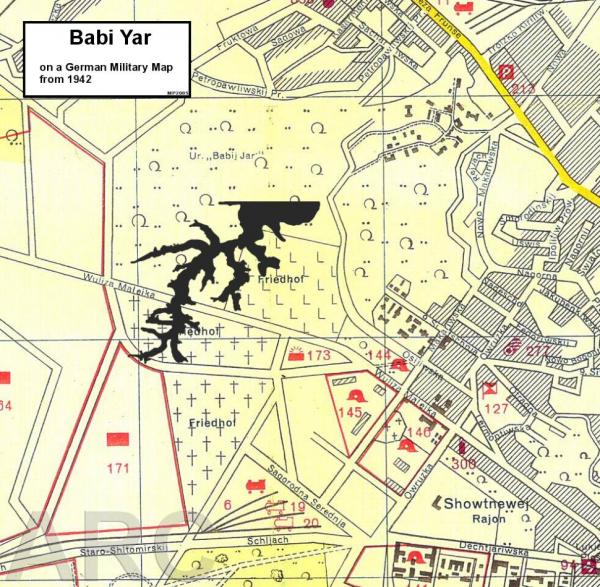
זיאַמע טעלעסין [[https://www.lebnsfragn.com/bin/articles.cgi?ID=55|[Zyame Telesin]]]
Zyame Telesin fu un fine letterato di cultura yiddish e poeta del Novecento apprezzato non soltanto in Unione Sovietica. L’unica sua opera reperibile online è un libro di poesie in yiddish pubblicato nel 1980. Purtroppo non abbiamo potuto trovare alcuna traduzione delle sue poesie in rete.
Viene citato nei saggi che trattano del rapporto tra cultura russa e cultura yiddish e nelle monografie di letteratura degli anni ’60.
Zyame Telesin (15 luglio 1909 -1996)
Nacque a Kalinkovitsh (Kalinkavičy), Polesia, Bielorussia, nella casa di un fabbro. Nel 1929 si trasferì a Mosca, dove studiò nella facoltà yiddish della Seconda Università statale di Mosca. Negli anni 1931-1940, pubblicò poesie in Shtern / Stella e Oktyabr / Ottobre, tra le altre riviste, a Minsk.
Tradusse Broyt / Pane [Khleb] di Aleksey Tolstoy... (continuer)
Zyame Telesin fu un fine letterato di cultura yiddish e poeta del Novecento apprezzato non soltanto in Unione Sovietica. L’unica sua opera reperibile online è un libro di poesie in yiddish pubblicato nel 1980. Purtroppo non abbiamo potuto trovare alcuna traduzione delle sue poesie in rete.
Viene citato nei saggi che trattano del rapporto tra cultura russa e cultura yiddish e nelle monografie di letteratura degli anni ’60.
Zyame Telesin (15 luglio 1909 -1996)
Nacque a Kalinkovitsh (Kalinkavičy), Polesia, Bielorussia, nella casa di un fabbro. Nel 1929 si trasferì a Mosca, dove studiò nella facoltà yiddish della Seconda Università statale di Mosca. Negli anni 1931-1940, pubblicò poesie in Shtern / Stella e Oktyabr / Ottobre, tra le altre riviste, a Minsk.
Tradusse Broyt / Pane [Khleb] di Aleksey Tolstoy... (continuer)
באַבי יאַר
(continuer)
(continuer)
envoyé par Riccardo Gullotta 18/4/2020 - 16:18
טום־באַלאַלײַקע
anonyme
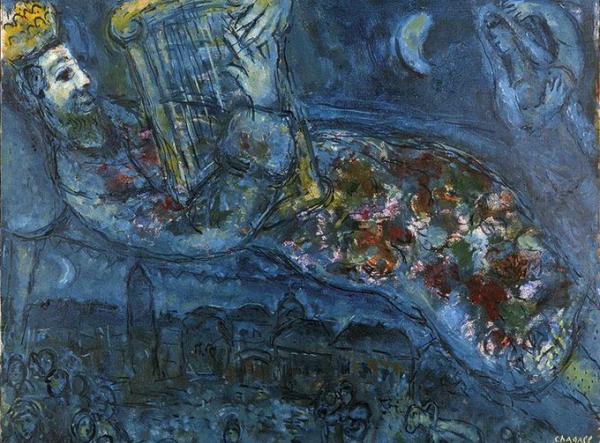
Tum-balalayke
[XIX secolo]
Anonimo
Introduzione
E’ un brano popolare della cultura ebrea ashkenazita. Le sue origini risalgono al XIX secolo nell’Europa orientale. Rimase pressoché sconosciuto ai più sino al 1940. Nel 1957 Pete Seeger lo inserì nel disco “Jewish Songs and Games” in un duetto con Ruth Rubin. Maggiore diffusione ebbe grazie a Theodore Bikel, grande attore ebreo e cantante. La sua incisione è del 1960.
Da allora la canzone ha valicato gli ambiti della cultura ebraica per acquisire popolarità a livello internazionale. È entrata a far parte della colonna sonora del film di Roberto Faenza del 2002 “Prendimi l’anima”. La melodia infatti non è affatto banale, rivela un’ intensità apparentemente inattesa. In realtà ciò non sorprende più di tanto se si vanno ad approfondire sviluppi ed espressioni della cultura ebraica nell’Europa dell’Est dal Settecento in poi.
Narra di un... (continuer)
[XIX secolo]
Anonimo
Introduzione
E’ un brano popolare della cultura ebrea ashkenazita. Le sue origini risalgono al XIX secolo nell’Europa orientale. Rimase pressoché sconosciuto ai più sino al 1940. Nel 1957 Pete Seeger lo inserì nel disco “Jewish Songs and Games” in un duetto con Ruth Rubin. Maggiore diffusione ebbe grazie a Theodore Bikel, grande attore ebreo e cantante. La sua incisione è del 1960.
Da allora la canzone ha valicato gli ambiti della cultura ebraica per acquisire popolarità a livello internazionale. È entrata a far parte della colonna sonora del film di Roberto Faenza del 2002 “Prendimi l’anima”. La melodia infatti non è affatto banale, rivela un’ intensità apparentemente inattesa. In realtà ciò non sorprende più di tanto se si vanno ad approfondire sviluppi ed espressioni della cultura ebraica nell’Europa dell’Est dal Settecento in poi.
Narra di un... (continuer)
1.
(continuer)
(continuer)
envoyé par Riccardo Gullotta 2/1/2020 - 23:03
דאָס פֿערצנטע יאָר
anonyme
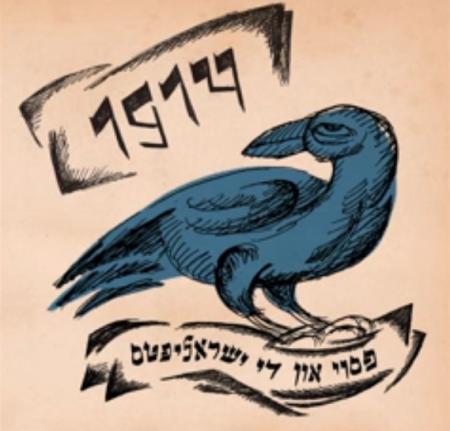
Dos fertsnte yor
Una canzone popolare in yiddish (di provenienza quasi certamente polacca, nota anche come Oyf di grine felder, velder) sulla morte di un soldato ebreo nella „grande guerra“. Uno dei tanti. E' la centesima canzone in yiddish inserita in questo sito: lo yiddish è la diciottesima lingua che raggiunge tale traguardo. Una sezione linguistica, del resto, persino più importante della sua oramai ragguardevole consistenza quantitativa.
La canzone presenta parecchie varianti. Il testo che segue è ripreso da Yidlid – Yidishe Lider e proviene in gran parte dal libro Yidishe folks-lider, compilato da Beregovsky e Fefer e pubblicato a Kiev nel 1938, con l'aggiunta di alcune strofe riprese da altre versioni. Secondo Gertrude Schneider, l'autrice di Mordechai Gebirtig, His poetic and musical legacy]] (pp. 4/5), esiste la possibilità che la canzone sia stata scritta da Mordechai Gebirtig:... (continuer)
Una canzone popolare in yiddish (di provenienza quasi certamente polacca, nota anche come Oyf di grine felder, velder) sulla morte di un soldato ebreo nella „grande guerra“. Uno dei tanti. E' la centesima canzone in yiddish inserita in questo sito: lo yiddish è la diciottesima lingua che raggiunge tale traguardo. Una sezione linguistica, del resto, persino più importante della sua oramai ragguardevole consistenza quantitativa.
La canzone presenta parecchie varianti. Il testo che segue è ripreso da Yidlid – Yidishe Lider e proviene in gran parte dal libro Yidishe folks-lider, compilato da Beregovsky e Fefer e pubblicato a Kiev nel 1938, con l'aggiunta di alcune strofe riprese da altre versioni. Secondo Gertrude Schneider, l'autrice di Mordechai Gebirtig, His poetic and musical legacy]] (pp. 4/5), esiste la possibilità che la canzone sia stata scritta da Mordechai Gebirtig:... (continuer)
דאָס פֿערצנטע יאָר איז אָנגעקומען, אוי וויי [1]
(continuer)
(continuer)
envoyé par Riccardo Venturi 29/11/2019 - 09:23
Parcours:
La Grande Guerre (1914-1918)
דירע־געלט
anonyme
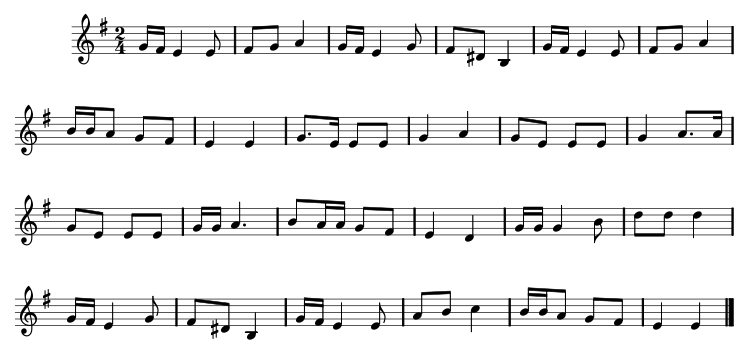
Dire-gelt
[XIX secolo / 19th century]
Canzone popolare yiddish di provenienza russa
Yiddish folksong of Russian origin
Chanson populaire yiddish d'origine russe
Canzone popolare yiddish di provenienza russa: risale quasi sicuramente alla 2a metà del XIX secolo. Un edificante quadretto di vita quotidiana negli shtetl dell'impero zarista. Un quadretto del "bel tempo che fu", però curiosamente somigliante ai modernissimi e attualissimi sfratti esecutivi con la forza pubblica che si hanno in tutte le città. Il testo in alfabeto ebraico, la trascrizione YIVO e le traduzioni in inglese e francese sono ripresi da Yidlid.
[XIX secolo / 19th century]
Canzone popolare yiddish di provenienza russa
Yiddish folksong of Russian origin
Chanson populaire yiddish d'origine russe
Canzone popolare yiddish di provenienza russa: risale quasi sicuramente alla 2a metà del XIX secolo. Un edificante quadretto di vita quotidiana negli shtetl dell'impero zarista. Un quadretto del "bel tempo che fu", però curiosamente somigliante ai modernissimi e attualissimi sfratti esecutivi con la forza pubblica che si hanno in tutte le città. Il testo in alfabeto ebraico, la trascrizione YIVO e le traduzioni in inglese e francese sono ripresi da Yidlid.
קומט אַריין דער סטרוזש [1]
(continuer)
(continuer)
27/11/2019 - 07:20
אין זאַלציקן ים
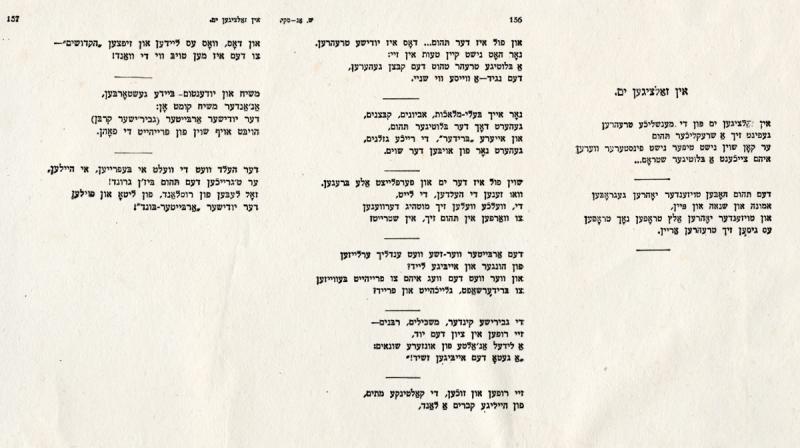
In zaltsikn yam
[1901]
Testo / Lyrics / Paroles / Sanat: Semën Akimovič An-skij
Musica / Music / Musique / Sävel: [?]
Il canto che segue, scritto nel 1901 da Semën Akimovič Rappoport, più noto come “S. An-skij”, assieme a Di shvue e noto anche come In zaltsikn yam fun di mentshlekhe trern e come Tsum Bund, è l'inno riconosciuto dell'Unione Generale dei Lavoratori Ebrei della Lituania, Polonia e Russia (Algemayner Yidisher Arbeter Bund in Lite, Poyln un Rusland), più nota semplicemente come “Bund”. Movimento fondato a Vilnius il 7 ottobre 1897, che si riprometteva di unificare tutti i lavoratori ebrei dell'Impero Russo sotto un unico partito socialista, e di allearsi con il movimento socialdemocratico russo per la realizzazione di una società democratica e socialista, e per ottenere il riconoscimento giuridico degli ebrei come minoranza nazionale.
Tsum Bund WanDeRer WanDeRer-Trio... (continuer)
[1901]
Testo / Lyrics / Paroles / Sanat: Semën Akimovič An-skij
Musica / Music / Musique / Sävel: [?]
Il canto che segue, scritto nel 1901 da Semën Akimovič Rappoport, più noto come “S. An-skij”, assieme a Di shvue e noto anche come In zaltsikn yam fun di mentshlekhe trern e come Tsum Bund, è l'inno riconosciuto dell'Unione Generale dei Lavoratori Ebrei della Lituania, Polonia e Russia (Algemayner Yidisher Arbeter Bund in Lite, Poyln un Rusland), più nota semplicemente come “Bund”. Movimento fondato a Vilnius il 7 ottobre 1897, che si riprometteva di unificare tutti i lavoratori ebrei dell'Impero Russo sotto un unico partito socialista, e di allearsi con il movimento socialdemocratico russo per la realizzazione di una società democratica e socialista, e per ottenere il riconoscimento giuridico degli ebrei come minoranza nazionale.
Tsum Bund WanDeRer WanDeRer-Trio... (continuer)
[1] אין זאַלציקן ים פֿון די מענטשלעכע טרערן
(continuer)
(continuer)
envoyé par Riccardo Venturi 20/11/2019 - 03:16
גוטער זכרון
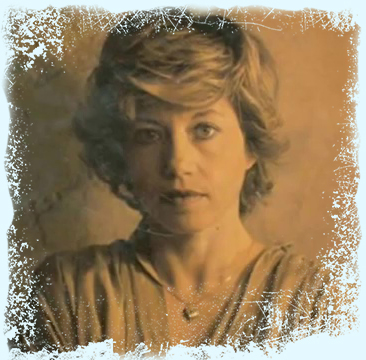
Guter zikorn
[2006]
פּאָעזיע / Poesia / A Poem by / Poésie/ شعر / Runo:
Binem Heller / בינם העלער
מוזיק/ Musica / Music / Musique / موسيقى / Sävel:
Chava Alberstein / חוה אלברשטיין
פּערפאָרמער/ Interpreti / Performed by / Interprétée par / مترجمين / Laulavat:
Chava Alberstein / חוה אלברשטיין
אלבאם / Album :
Lemele / לעמעלע
Lemele (pecora) è il 58° album di Chava Alberstein pubblicato nel 2006. Guter Zikorn è la traccia #1.
Binem Heller è stato un poeta, letterato e saggista che ha lasciato numerose opere. Segue la sua biografia
Binem Heller (January 25, 1908- May 12, 1998)
He was born in Warsaw, Poland, into a poor Hassidic family. He studied in religious elementary school and yeshiva. At age fourteen he became a glove-maker, and later he joined the Communist cause and thus had to leave Poland. From 1937 to May 1939, he lived in Belgium and Paris, later returning... (continuer)
[2006]
פּאָעזיע / Poesia / A Poem by / Poésie/ شعر / Runo:
Binem Heller / בינם העלער
מוזיק/ Musica / Music / Musique / موسيقى / Sävel:
Chava Alberstein / חוה אלברשטיין
פּערפאָרמער/ Interpreti / Performed by / Interprétée par / مترجمين / Laulavat:
Chava Alberstein / חוה אלברשטיין
אלבאם / Album :
Lemele / לעמעלע
Lemele (pecora) è il 58° album di Chava Alberstein pubblicato nel 2006. Guter Zikorn è la traccia #1.
Binem Heller è stato un poeta, letterato e saggista che ha lasciato numerose opere. Segue la sua biografia
Binem Heller (January 25, 1908- May 12, 1998)
He was born in Warsaw, Poland, into a poor Hassidic family. He studied in religious elementary school and yeshiva. At age fourteen he became a glove-maker, and later he joined the Communist cause and thus had to leave Poland. From 1937 to May 1939, he lived in Belgium and Paris, later returning... (continuer)
[1] גוטער זכּרון
(continuer)
(continuer)
envoyé par Riccardo Gullotta 11/9/2019 - 00:10
Parcours:
Ghettos
Bella Ciao
anonyme

53. אַדיע, אדיע / Sheyn, adye (Versione yiddish di Riccardo Venturi)
53. אַדיע, אדיע / Sheyn, adye (Yiddish version by Riccardo Venturi)
יידישע ווערסיע / Versione yiddish / Yiddish version / Version yiddish / Jiddiškielinen versio:
Riccardo Venturi / ריקאַרדאָ װענטורי , 02-09-2019 01:46
Come risulta in numerosi punti di questa pagina, una possibile origine “klezmer” della melodia di “Bella Ciao” è un'ipotesi che ha ottenuto molto credito in questi ultimi tempi (specialmente in ambiente giornalistico, da cui è stata ripresa in diverse edizioni delle varie Wikipedia). In attesa di futuri sviluppi di questa ipotesi, abbiamo constatato che, in tutte le lingue in cui “Bella Ciao” è stata tradotta e cantata, mancava -almeno a nostra conoscenza- proprio la lingua che della musica “klezmer” è stata ed è il principale veicolo, vale a dire lo yiddish. Ci siamo detti: E perché non provare a farla?... (continuer)
53. אַדיע, אדיע / Sheyn, adye (Yiddish version by Riccardo Venturi)
יידישע ווערסיע / Versione yiddish / Yiddish version / Version yiddish / Jiddiškielinen versio:
Riccardo Venturi / ריקאַרדאָ װענטורי , 02-09-2019 01:46
Come risulta in numerosi punti di questa pagina, una possibile origine “klezmer” della melodia di “Bella Ciao” è un'ipotesi che ha ottenuto molto credito in questi ultimi tempi (specialmente in ambiente giornalistico, da cui è stata ripresa in diverse edizioni delle varie Wikipedia). In attesa di futuri sviluppi di questa ipotesi, abbiamo constatato che, in tutte le lingue in cui “Bella Ciao” è stata tradotta e cantata, mancava -almeno a nostra conoscenza- proprio la lingua che della musica “klezmer” è stata ed è il principale veicolo, vale a dire lo yiddish. Ci siamo detti: E perché non provare a farla?... (continuer)
שײן אַדיע [1]
(continuer)
(continuer)
2/9/2019 - 01:51
רייזעלע
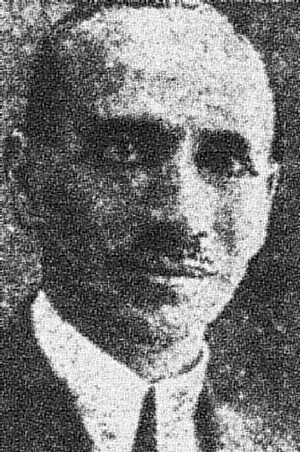
[1938/40]
Reyzele
טעקסט / Testo / Lyrics / Paroles / Sanat: מרדכי געבירטיג - Mordekhay Gebirtig
מוזיק / Musica / Music / Musique / Sävel: מרדכי געבירטיג - Mordekhay Gebirtig
יבערזעצן / Interprete / Performed by / Interprétée par / Laulaa : Chava Alberstein - חוה אלברשטיין
E’ una famosa canzone yiddish di Mordechai Gebirtig. Fu composta presumibilmente tra il 1938 e il 1940.
Come nelle altre sue canzoni, la vita ,i sentimenti e le usanze ebraiche nel periodo antecedente l’Olocausto sono tratteggiati con la semplicità e la tenerezza di un grande interprete della cultura yiddish .Si divise tra l’impegno politico nel Bund ed il teatro. Avrebbe potuto salvarsi lasciando il Ghetto di Cracovia ma rifiutò. Fu fucilato dai nazisti per strada nel 1942.
I confinati nel Ghetto, tra cui la sua famiglia e i suoi compagni, finirono nei campi di sterminio in 11.000, vittime del piano delle... (continuer)
Reyzele
טעקסט / Testo / Lyrics / Paroles / Sanat: מרדכי געבירטיג - Mordekhay Gebirtig
מוזיק / Musica / Music / Musique / Sävel: מרדכי געבירטיג - Mordekhay Gebirtig
יבערזעצן / Interprete / Performed by / Interprétée par / Laulaa : Chava Alberstein - חוה אלברשטיין
E’ una famosa canzone yiddish di Mordechai Gebirtig. Fu composta presumibilmente tra il 1938 e il 1940.
Come nelle altre sue canzoni, la vita ,i sentimenti e le usanze ebraiche nel periodo antecedente l’Olocausto sono tratteggiati con la semplicità e la tenerezza di un grande interprete della cultura yiddish .Si divise tra l’impegno politico nel Bund ed il teatro. Avrebbe potuto salvarsi lasciando il Ghetto di Cracovia ma rifiutò. Fu fucilato dai nazisti per strada nel 1942.
I confinati nel Ghetto, tra cui la sua famiglia e i suoi compagni, finirono nei campi di sterminio in 11.000, vittime del piano delle... (continuer)
[1] שטייט זיך דאָרט אין געסעלע
(continuer)
(continuer)
envoyé par Riccardo Gullotta + CCG/AWS Staff 5/8/2019 - 13:10
Solidarity Forever

Versione in Yiddish scritta da Sam Liptzin
The Yiddish lyrics in transcription contributed by Paweł Dembowski are shown in a footnote. The lyrics in Hebrew characters have been restored by Riccardo Venturi.
[1] בױט, אַרבעטער, אַ יוניאָן!
(continuer)
(continuer)
envoyé par Paweł Dembowski 25/12/2018 - 15:34
נרקוד לשלום

11. YIDDISH / Yiddish
Anne Gawenda
NOTA. La trascrizione nel sito originale è in diversi punti scorretta e "anglicizzante" (ed anche "germanizzante" ("foon", "dar", "mahr", "valt" ecc.). E' stata quindi rifatta in base ai criteri YIVO.
NOTE. The transcription included in the original site is uncorrect and "anglicized" (and also "Germanized") in some points ("foon", "dar", "mahr", "valt" etc.), and has been edited according to YIVO transcription principles.
Anne Gawenda
NOTA. La trascrizione nel sito originale è in diversi punti scorretta e "anglicizzante" (ed anche "germanizzante" ("foon", "dar", "mahr", "valt" ecc.). E' stata quindi rifatta in base ai criteri YIVO.
NOTE. The transcription included in the original site is uncorrect and "anglicized" (and also "Germanized") in some points ("foon", "dar", "mahr", "valt" etc.), and has been edited according to YIVO transcription principles.
מיר טאַנצן פאַר שלום [1]
(continuer)
(continuer)
envoyé par Riccardo Venturi 25/8/2017 - 20:34
Nordest

ייִדישע איבערזעצונג פֿון ריקאַרדאָ װענטורי
(מיט טראַנסקריבירונג)
12.8.2017 00:24
(מיט טראַנסקריבירונג)
12.8.2017 00:24
צפֿון־מיזרח [1]
(continuer)
(continuer)
envoyé par ריקאַרדאָ װענטורי 12/8/2017 - 00:24
Kufia - Canto per la Palestina

ייִדישע יבערזעצונג פֿון ריקאַרדאָ װענטורי
21-3-2017 02:33
21-3-2017 02:33
קופֿיאַ - אַ ליד פֿאַר פּאַלעסטינע
(continuer)
(continuer)
envoyé par ריקאַרדאָ װענטורי 21/3/2017 - 02:40
×
![]()




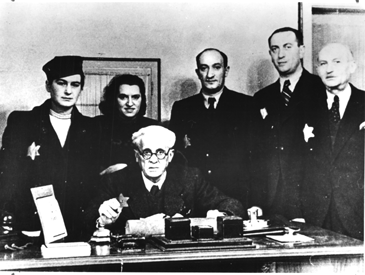

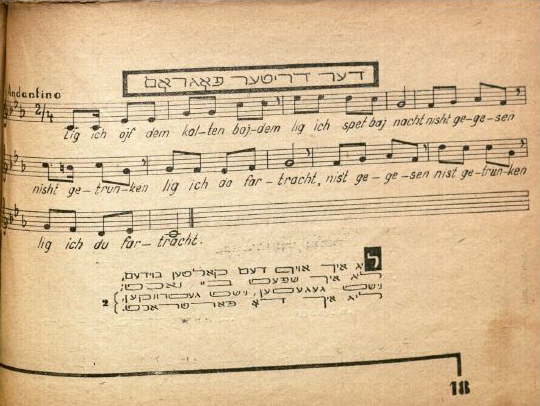
[XIX sec]
ליריקס און מוזיק / Testo e musica / Lyrics and music / Paroles et musique / Sanat ja sävel:
אַנאָנימע / Anonimo / Anonymous / Anonyme / Nimeämätön
יבערזעצן / Interprete / Performed by / Interprétée par / Laulavat :
Karsten Troyke
אלבאם / Album : Jidische Vergessene Lieder
Nella canzone di genere klezmer sono presenti elementi di musica rom. Anche Il videoclip è interessante per la sequenza delle pitture di Chagall , fanno pendant con l’ambiente descritto nella musica. Si apprezza l’interpretazione di Karsten Troyke, artista e cantante affermato nella esecuzione di opere della cultura ebraica.
Nei luoghi citati nella canzone sino alla seconda guerra mondiale c’erano delle fiorenti comunità ebraiche.
Più di 400mila ebrei ungheresi furono deportati dai nazisti nel 1944. Oggi gli ebrei residenti in Ungheria sono 100mila.
Anche la comunità Rom... (continuer)